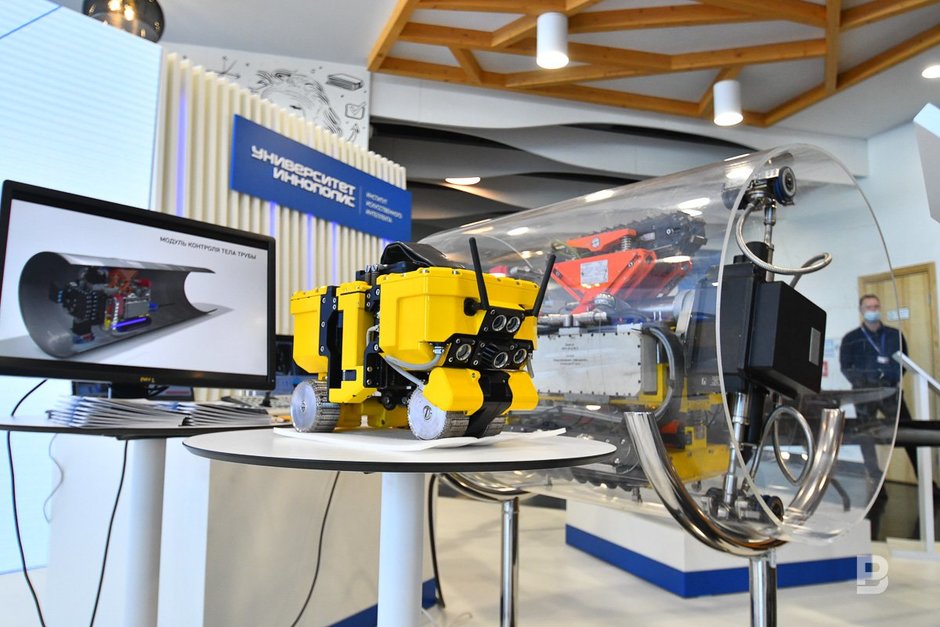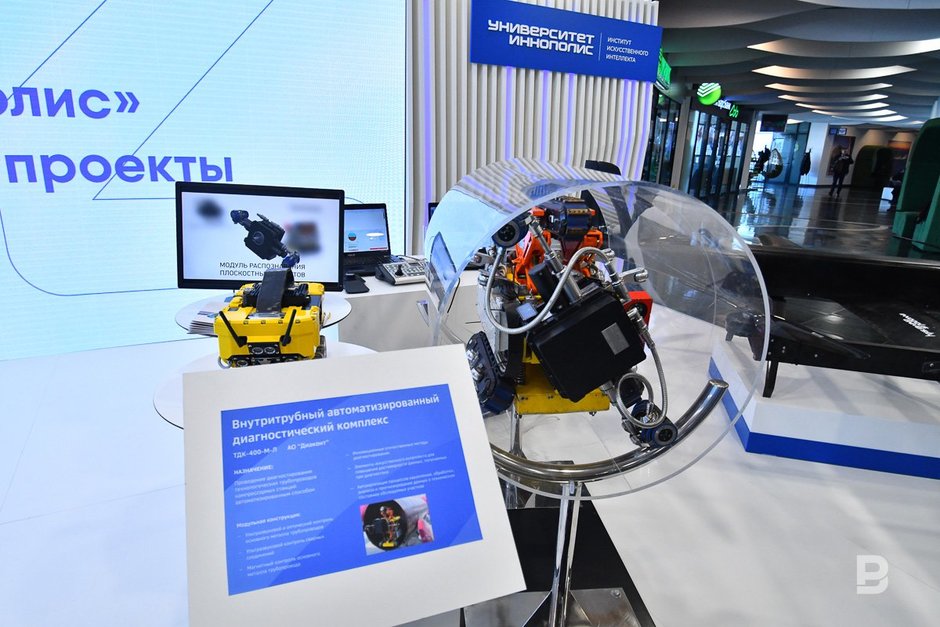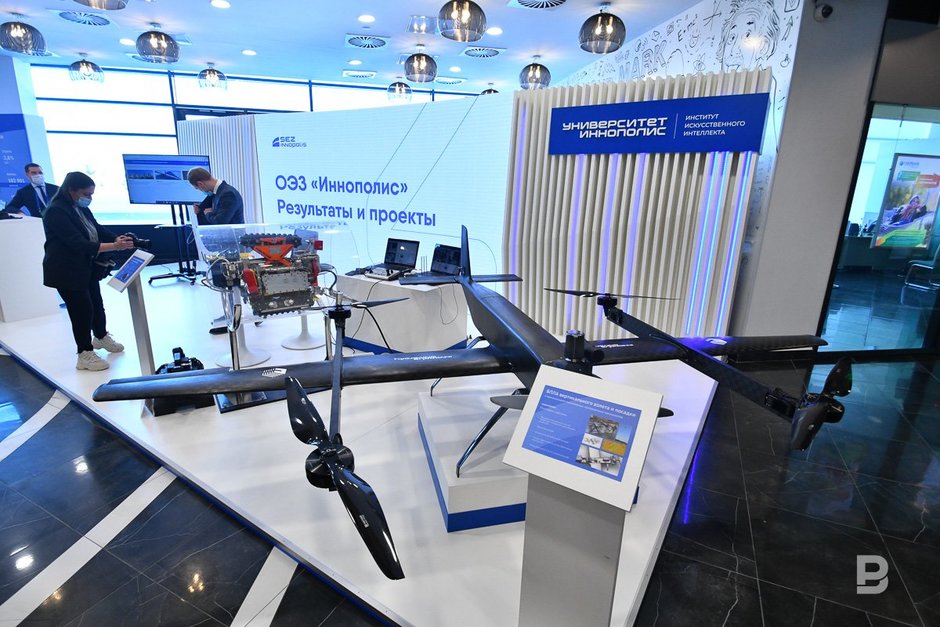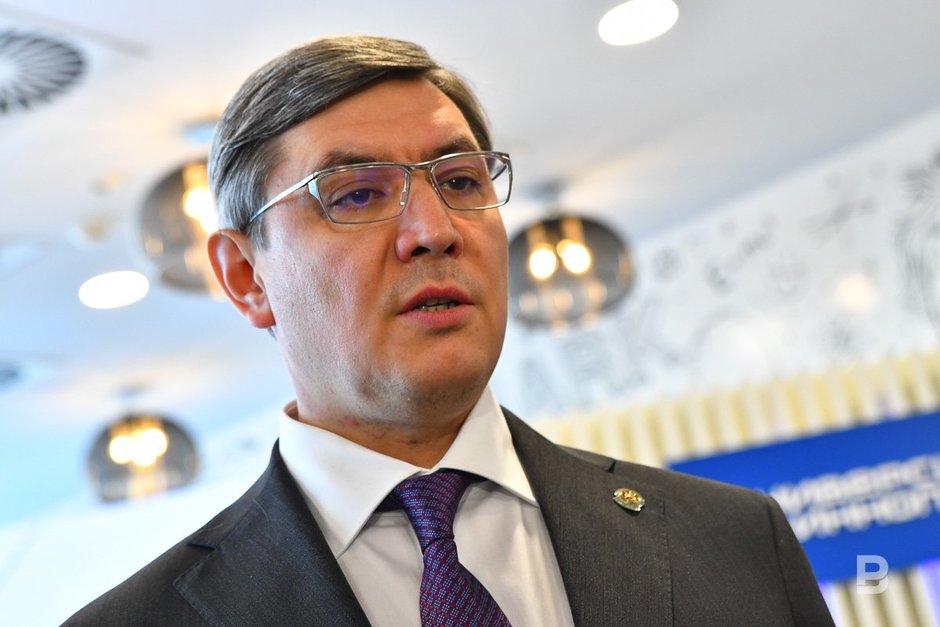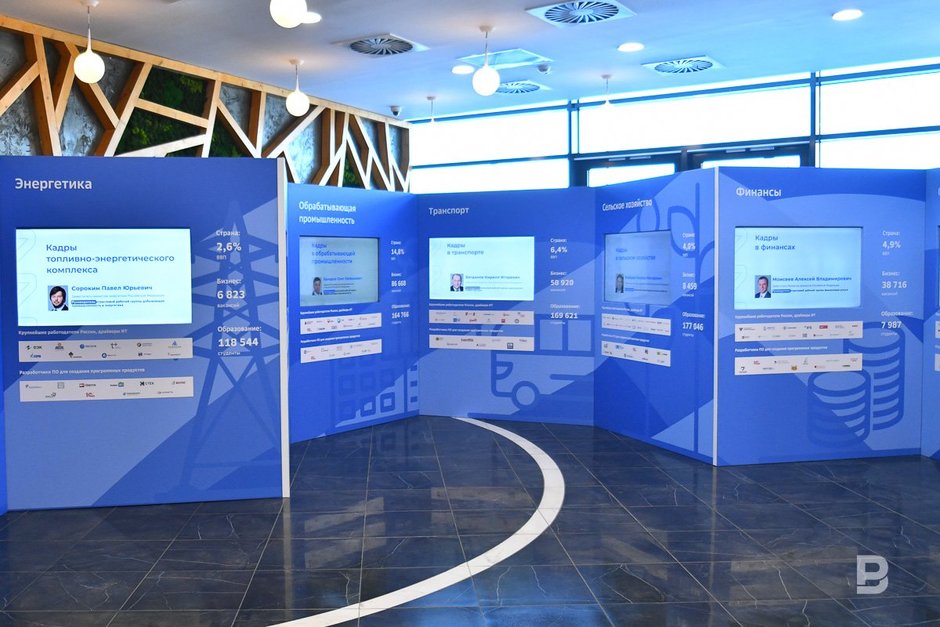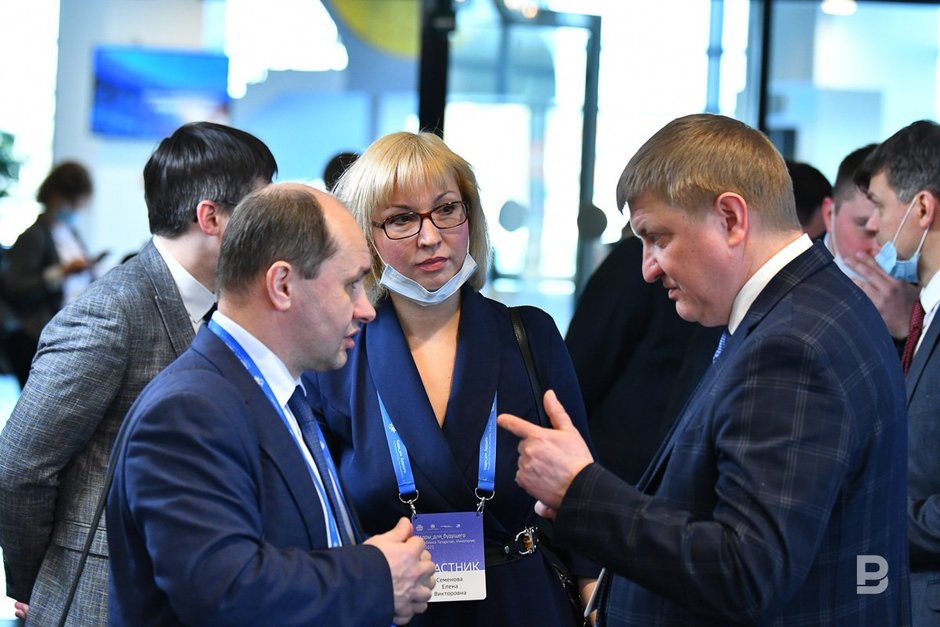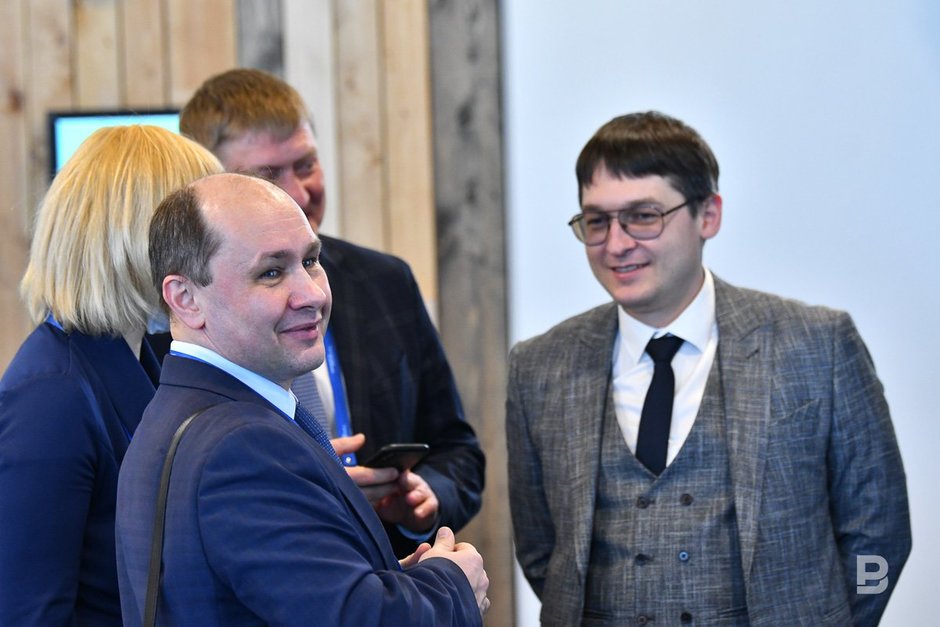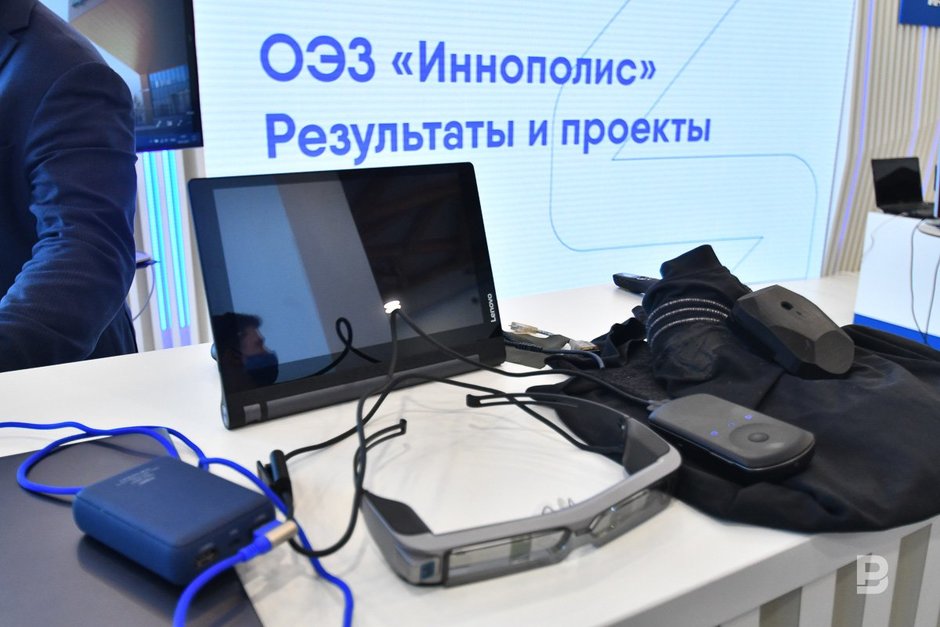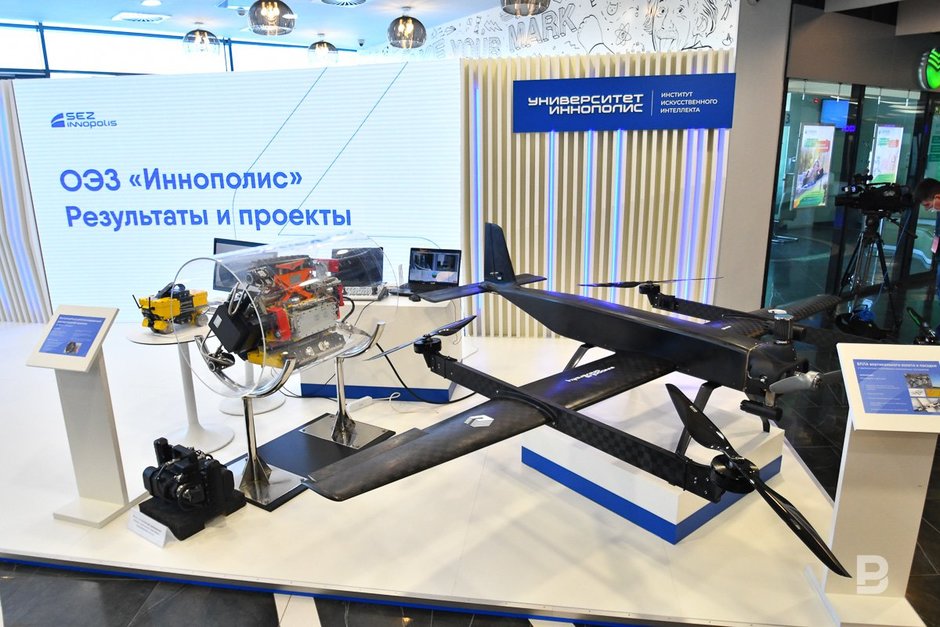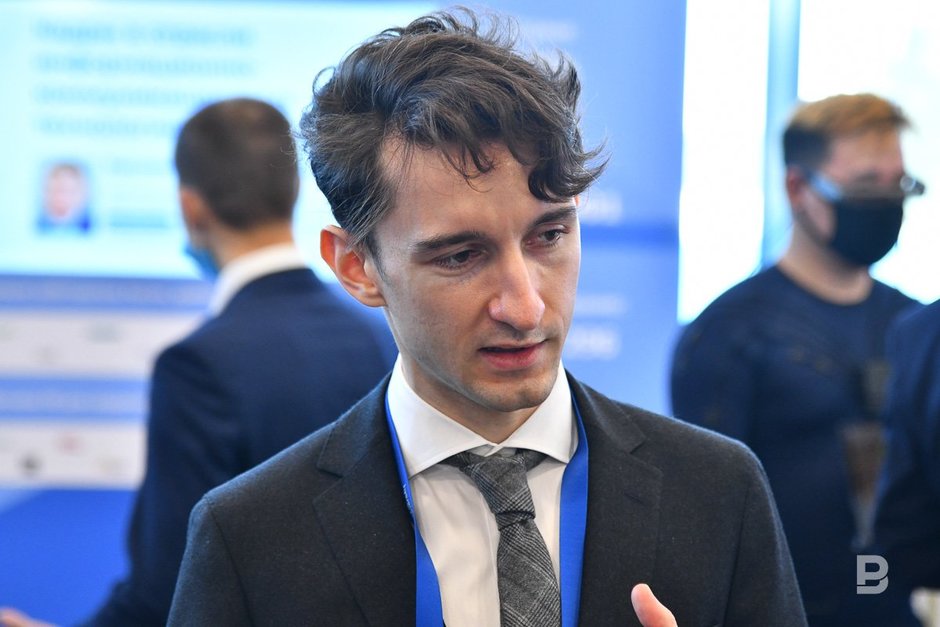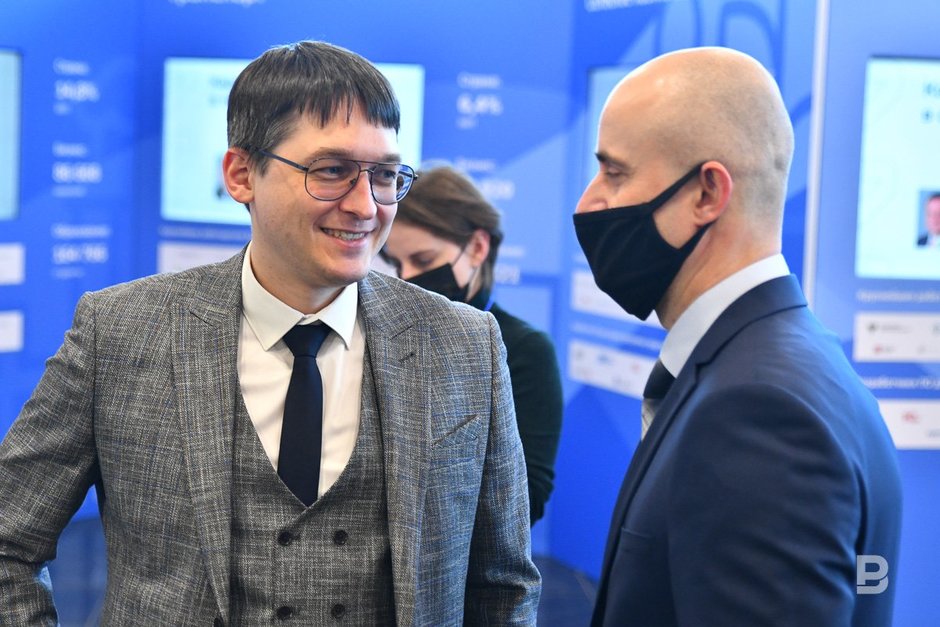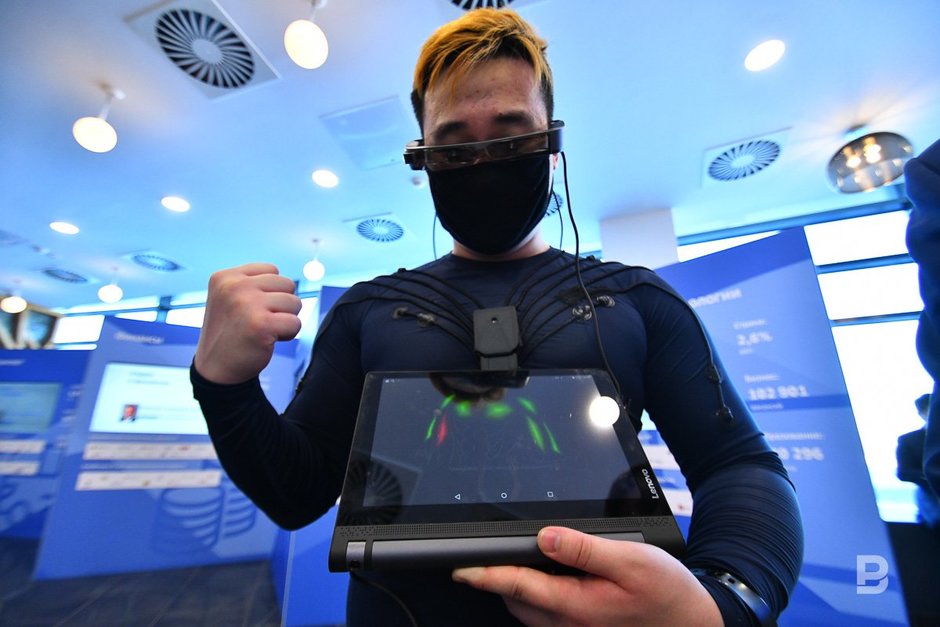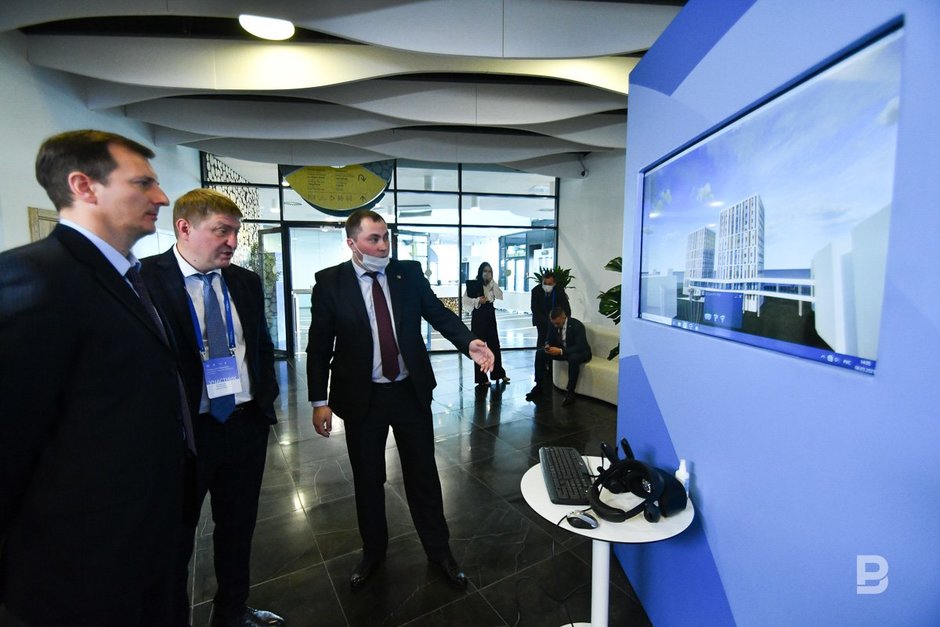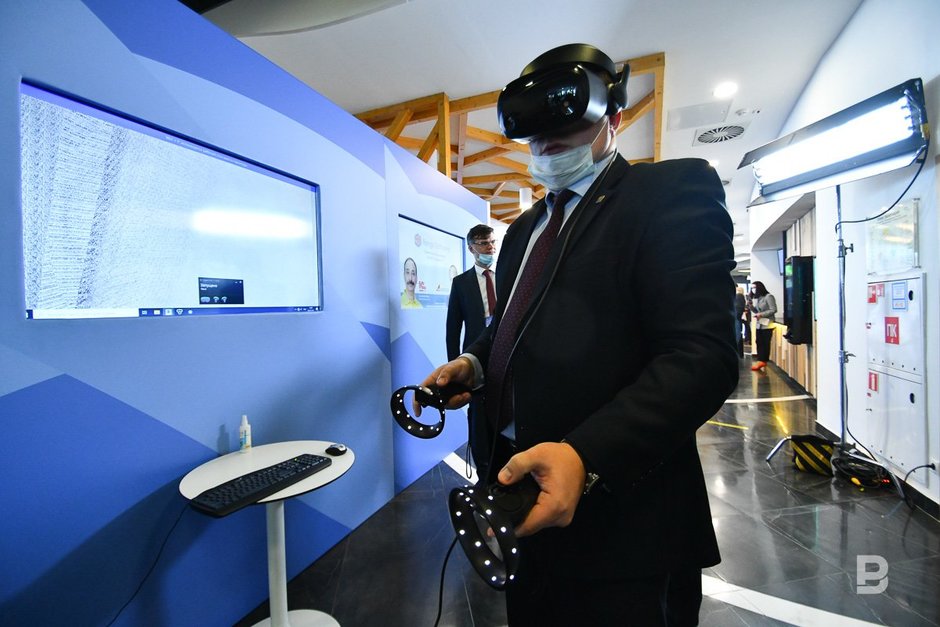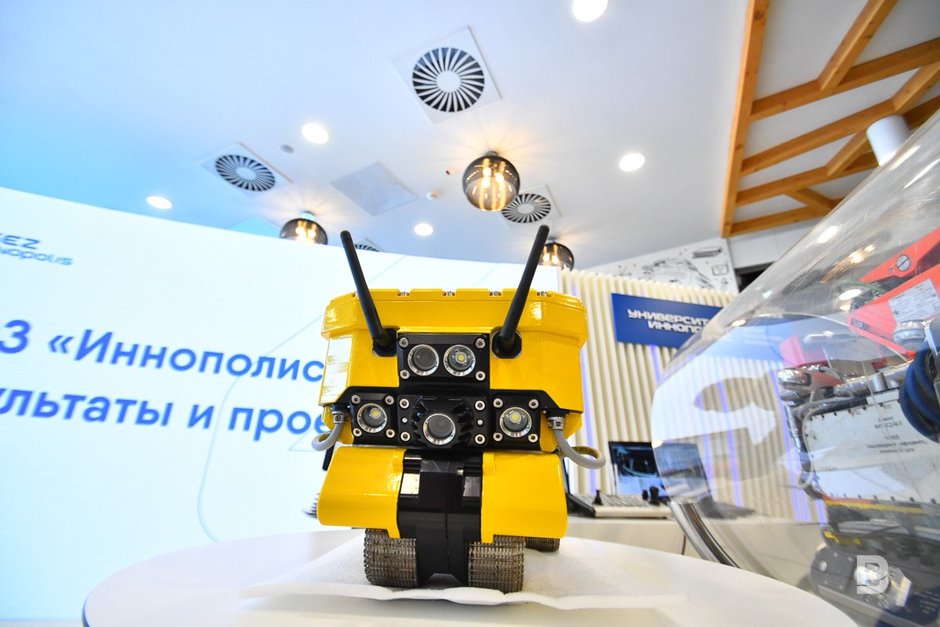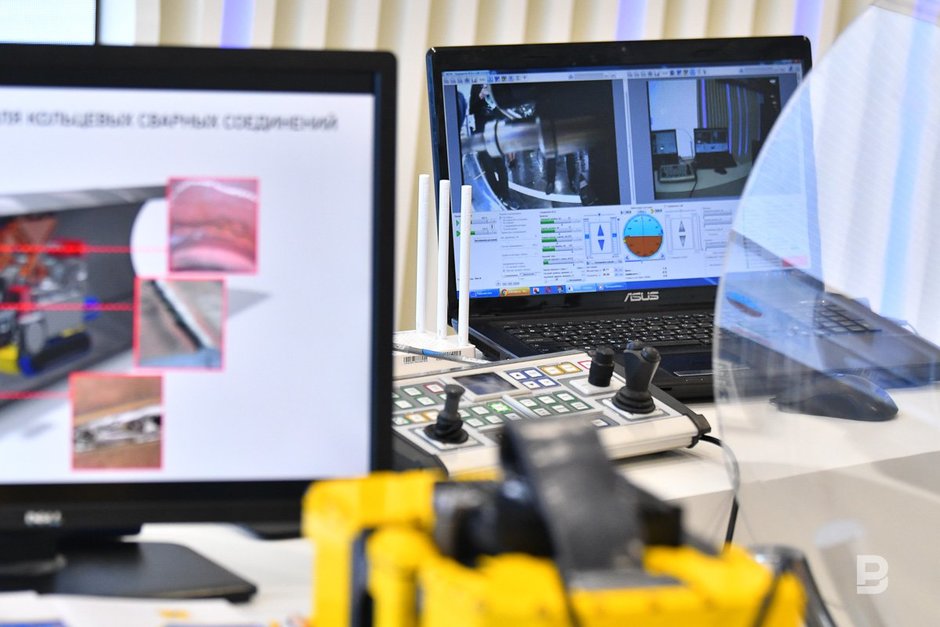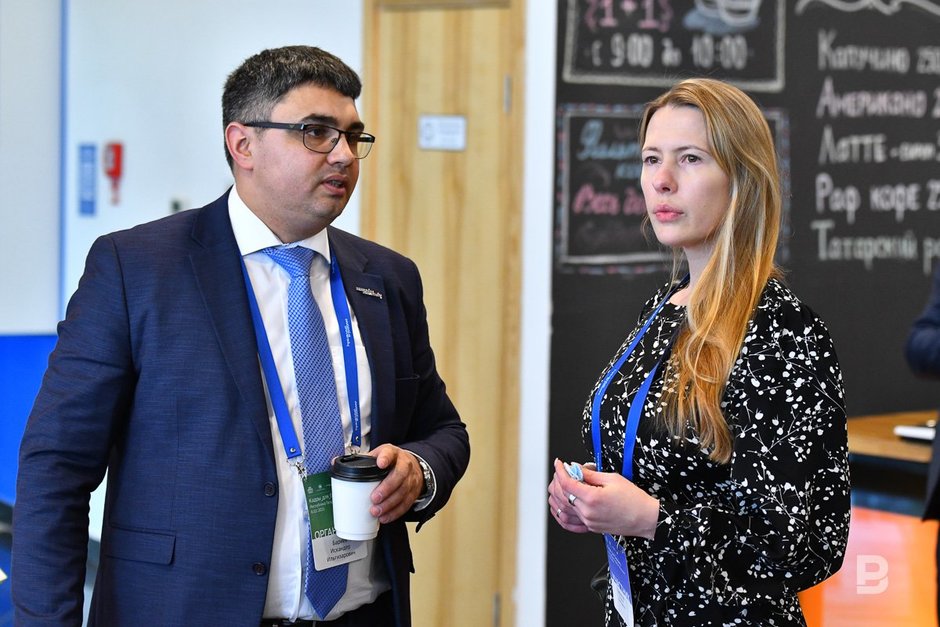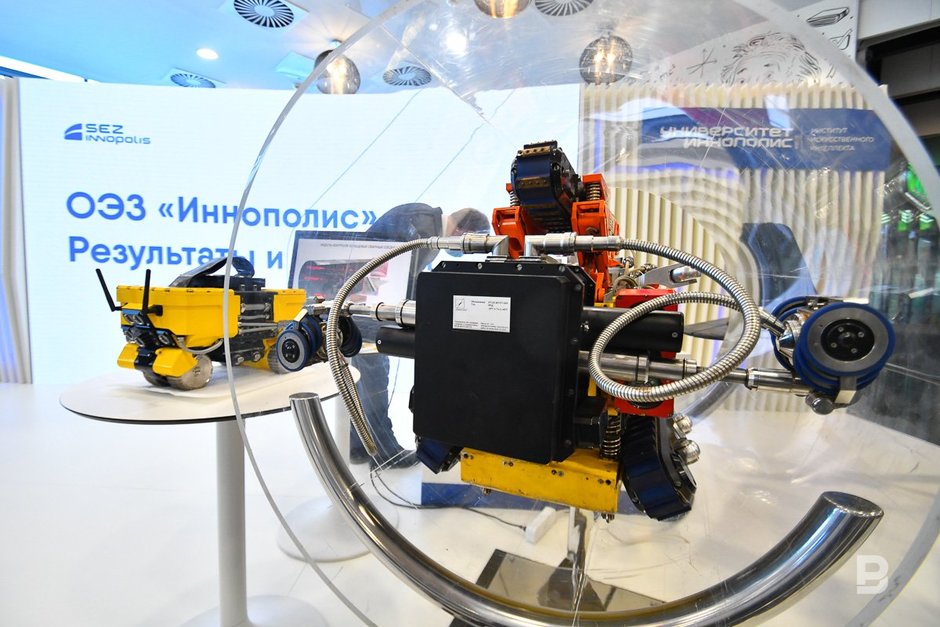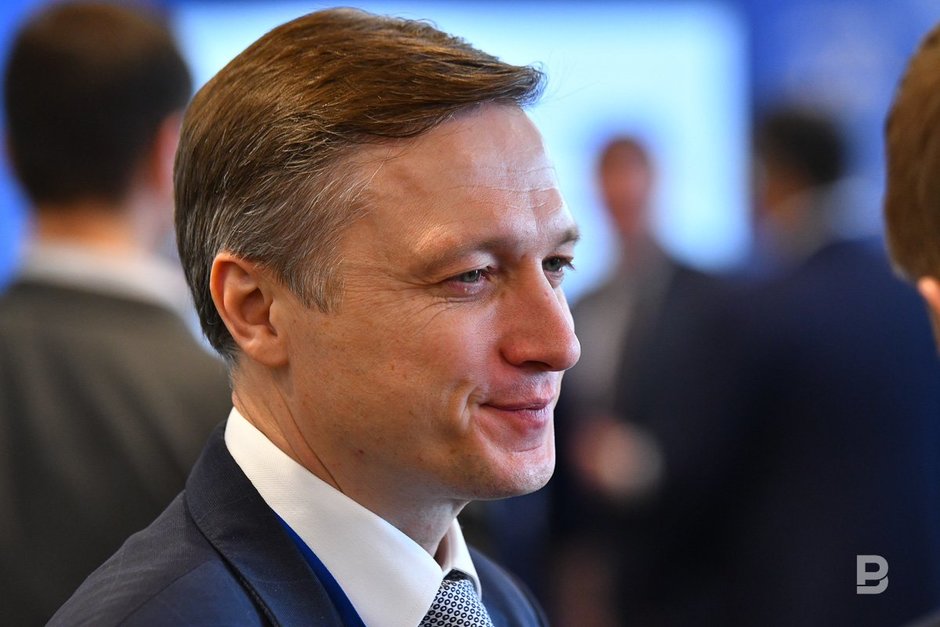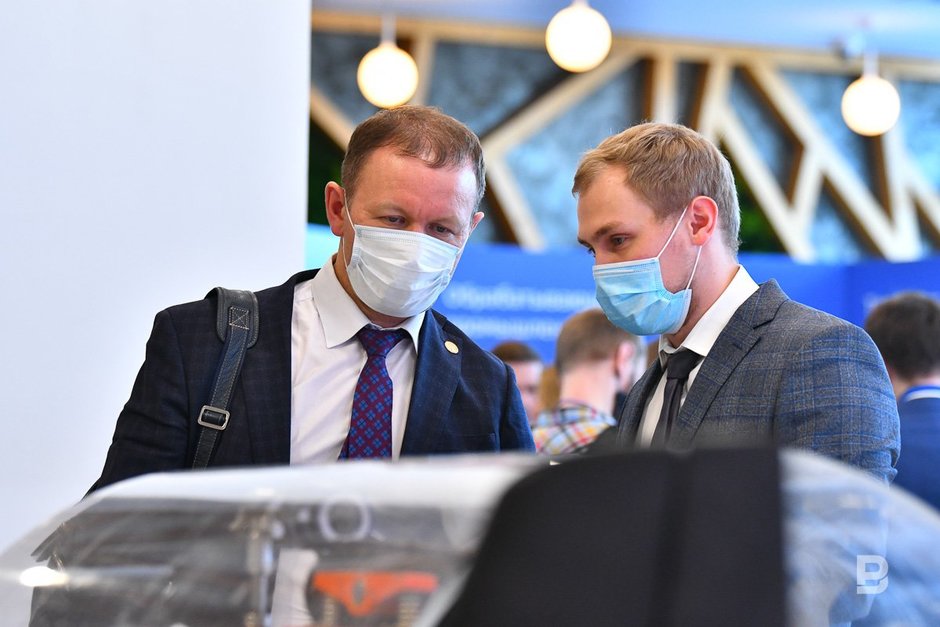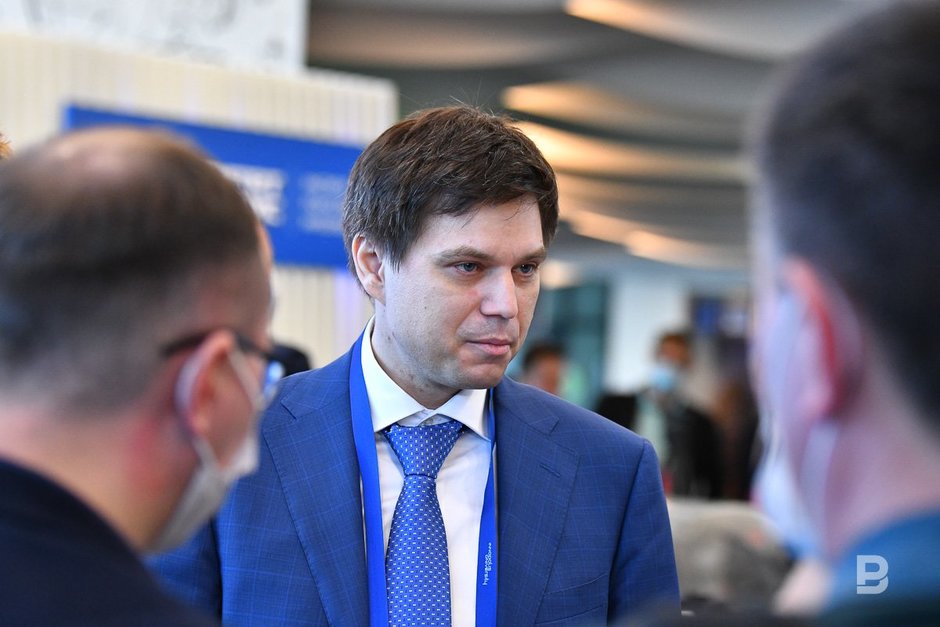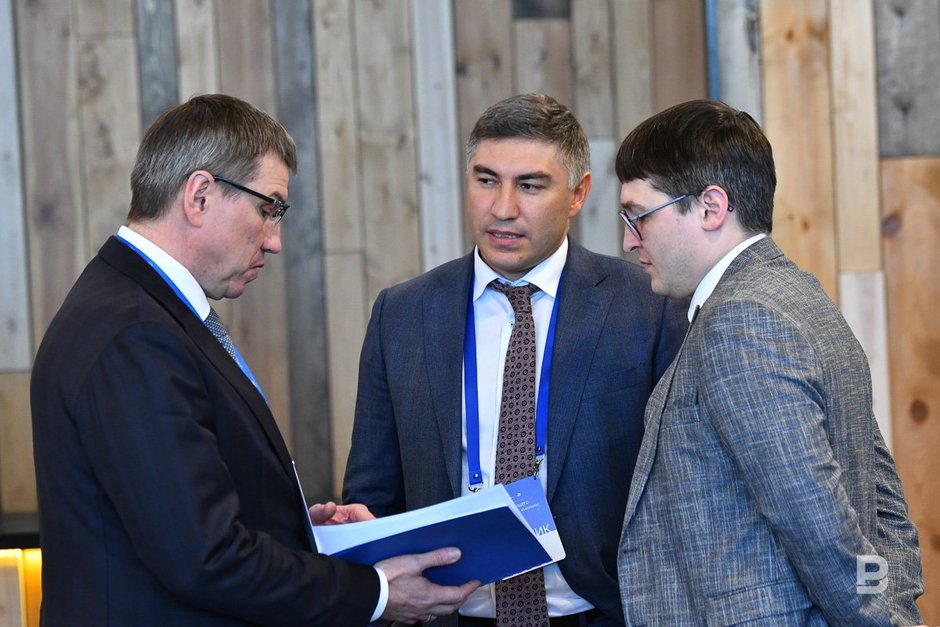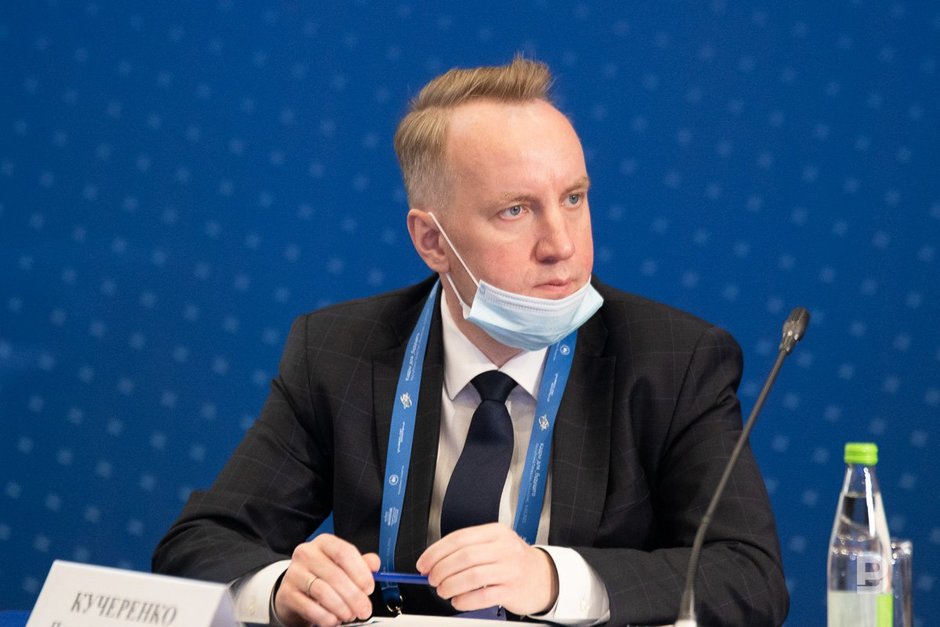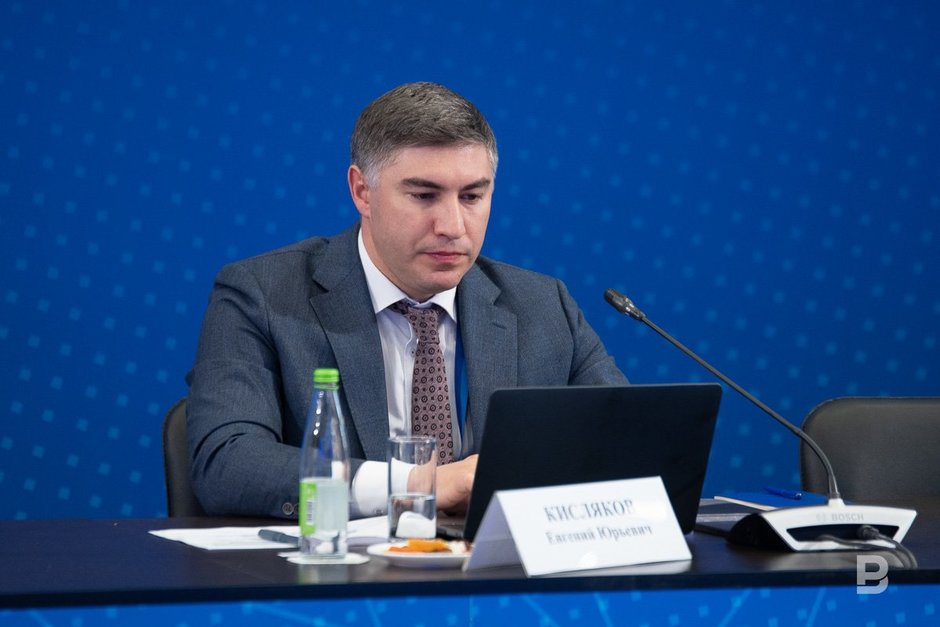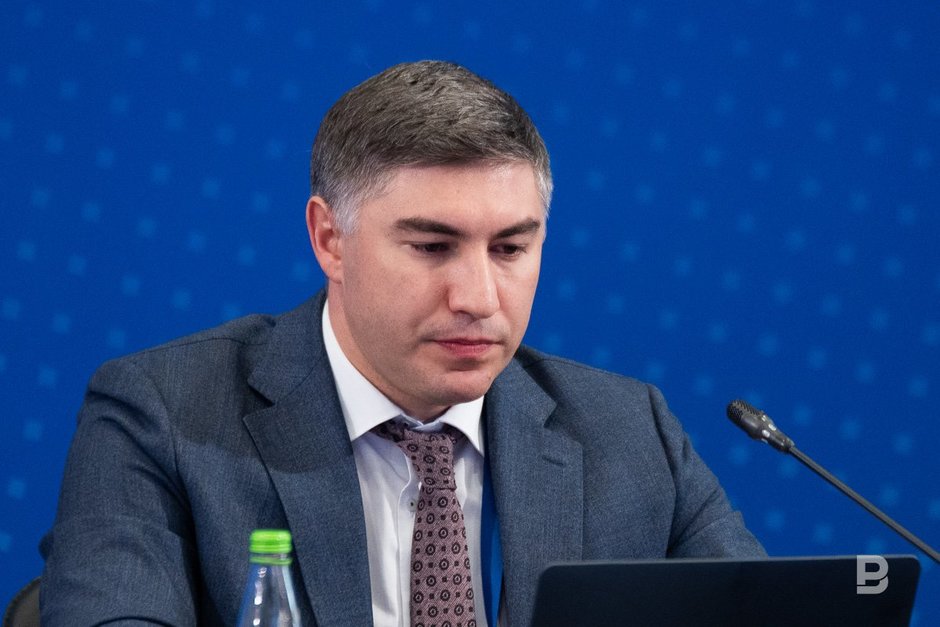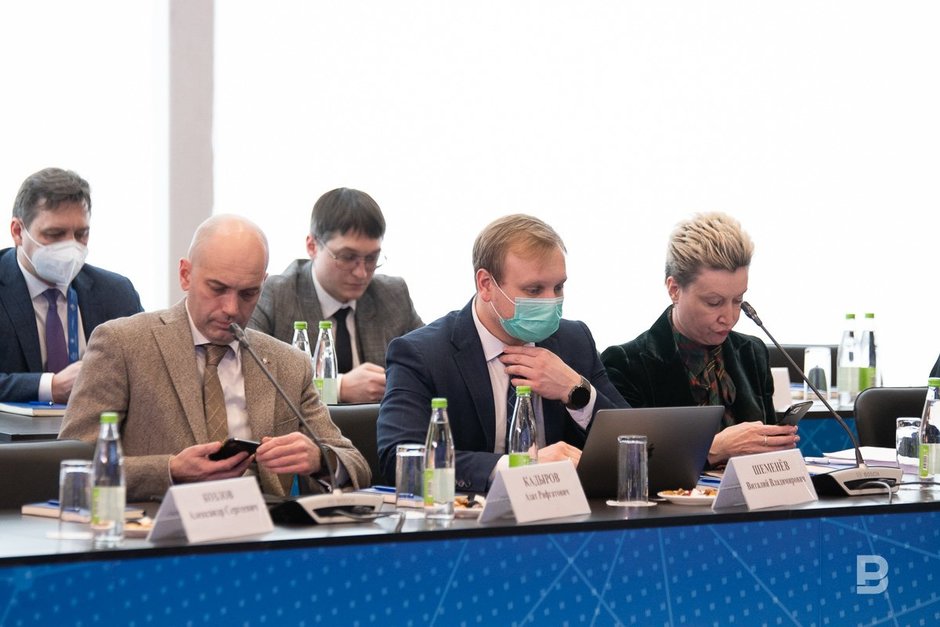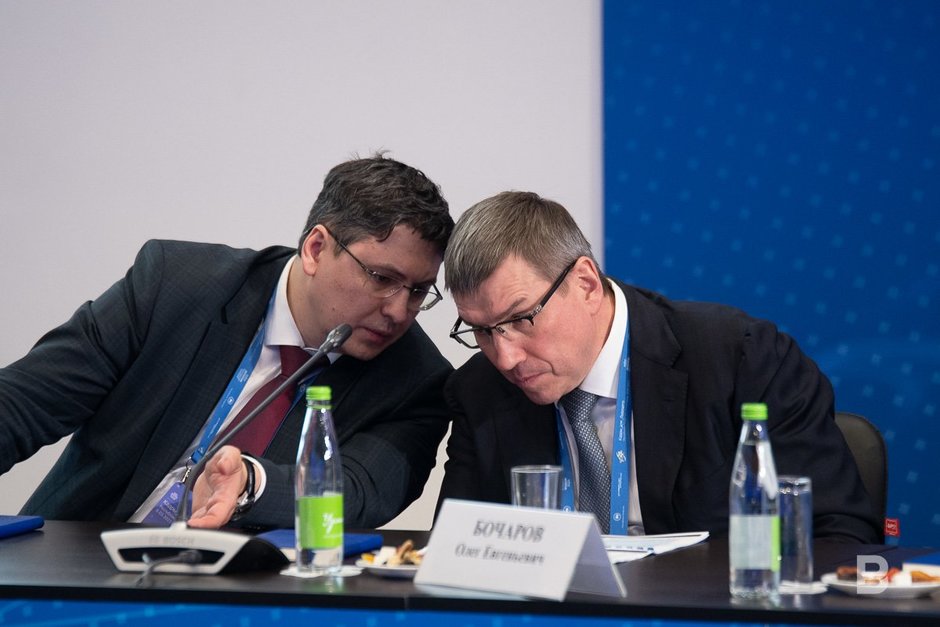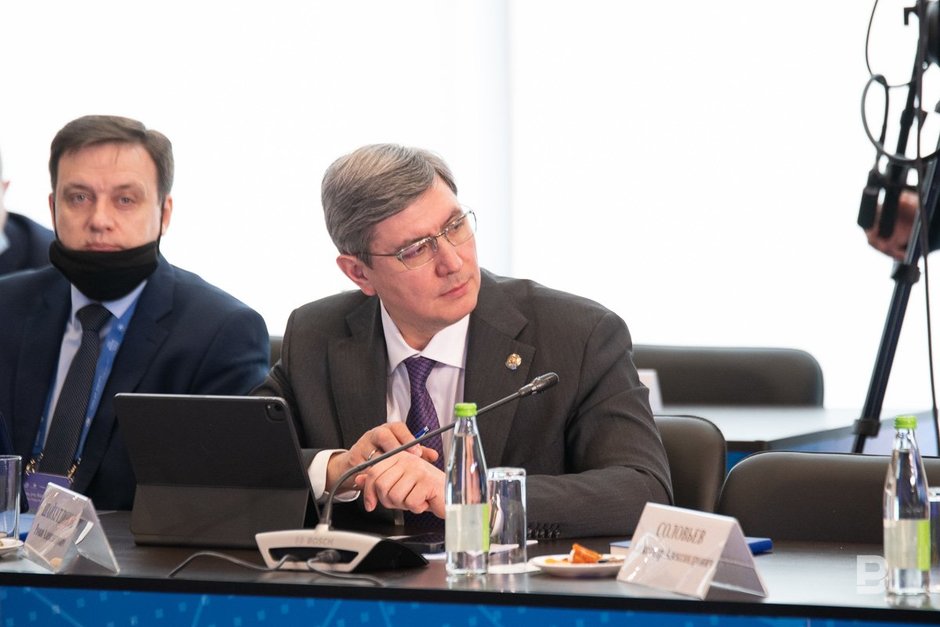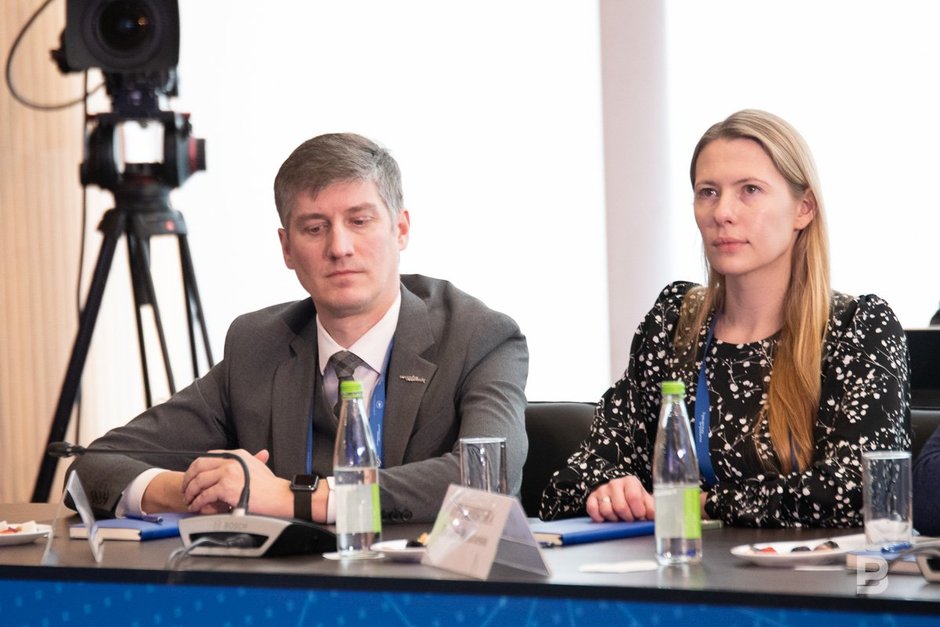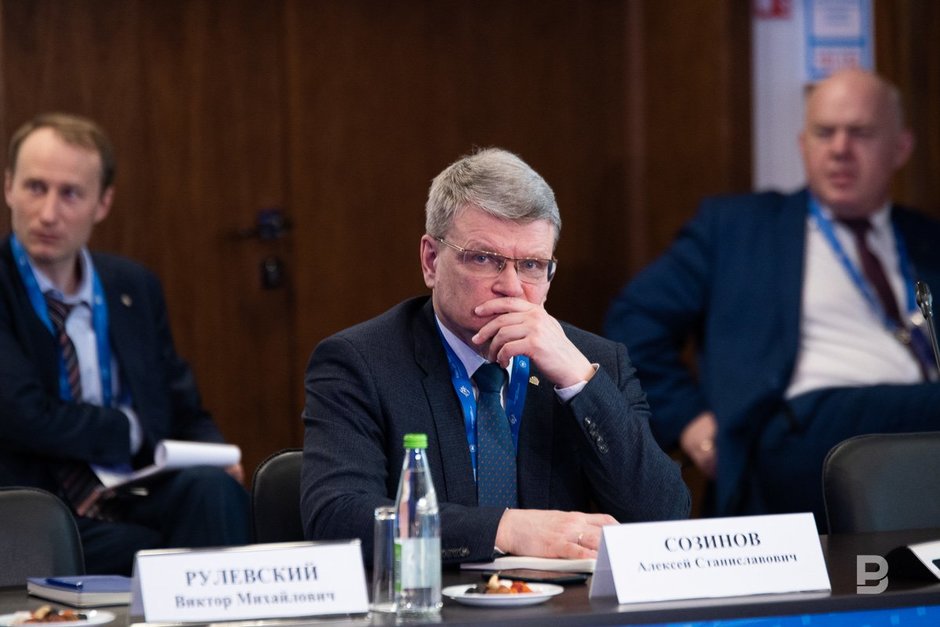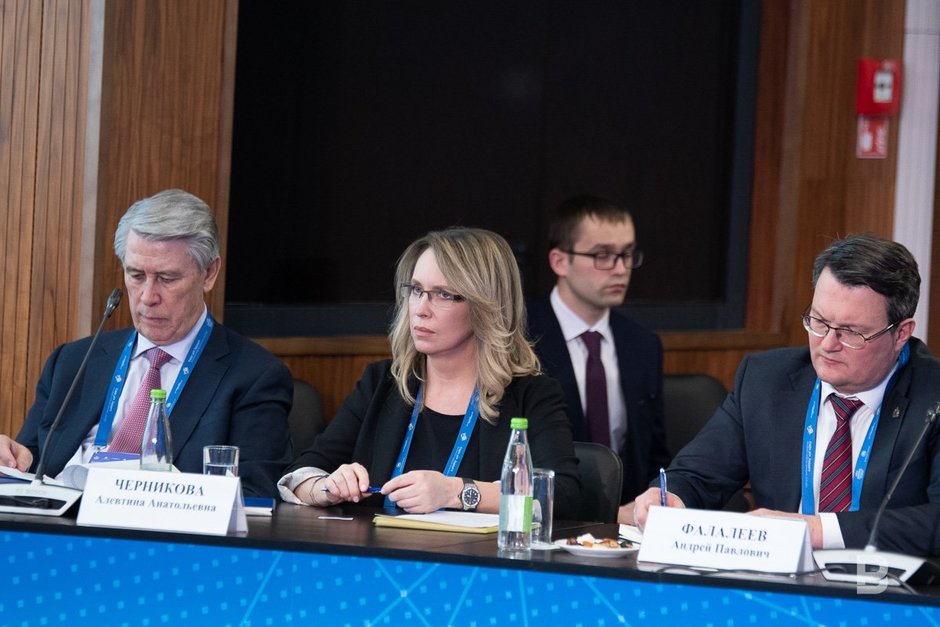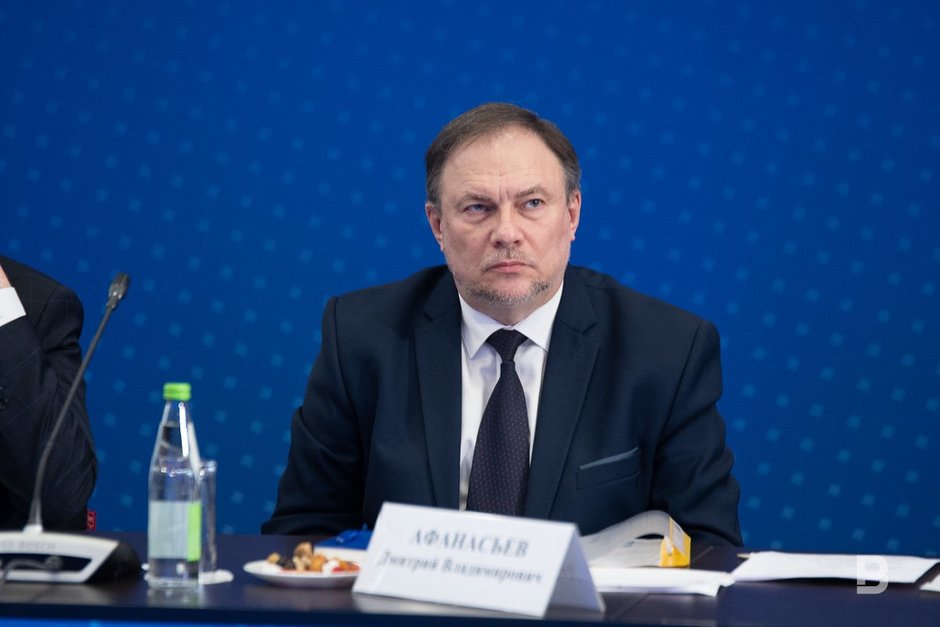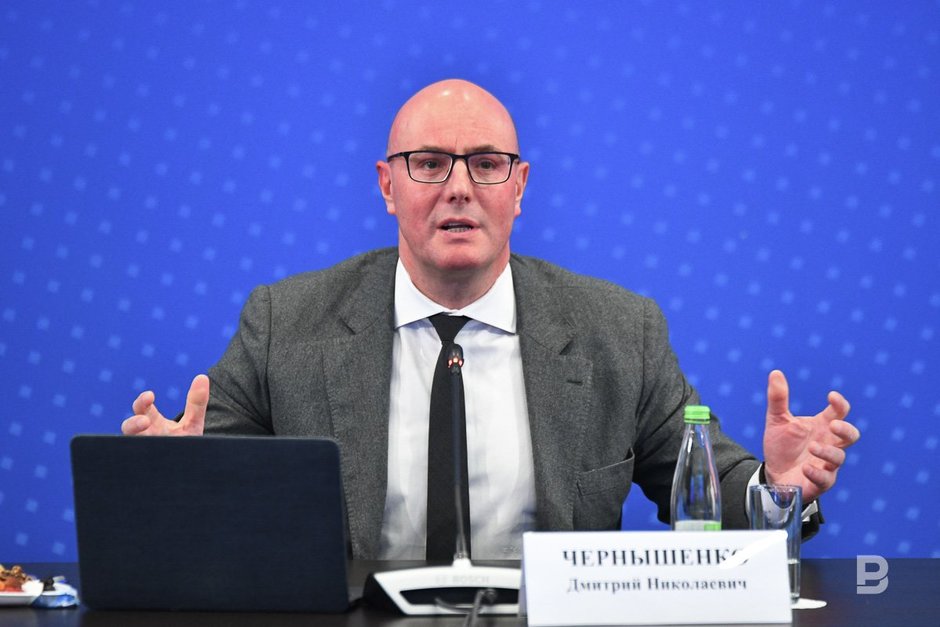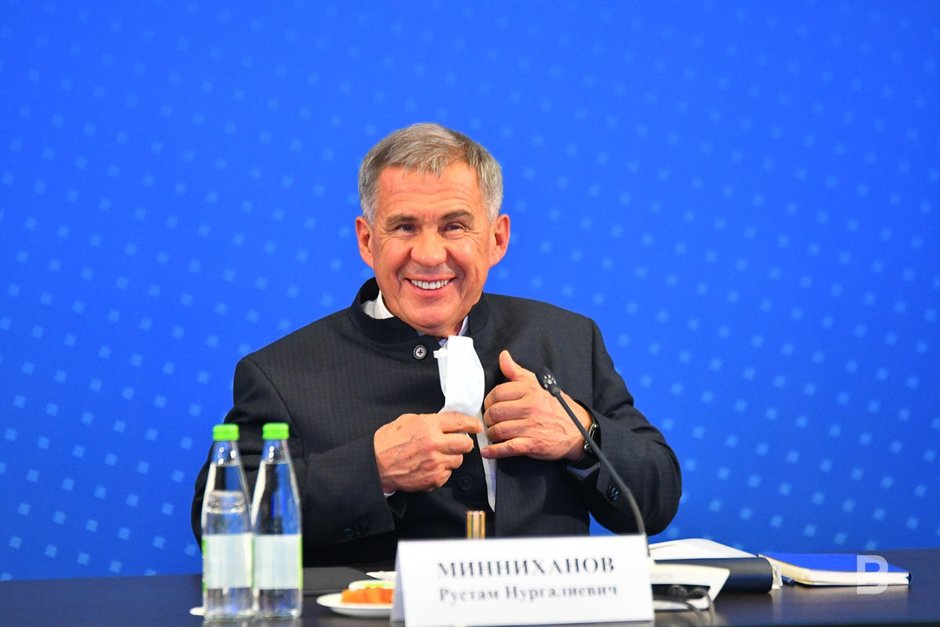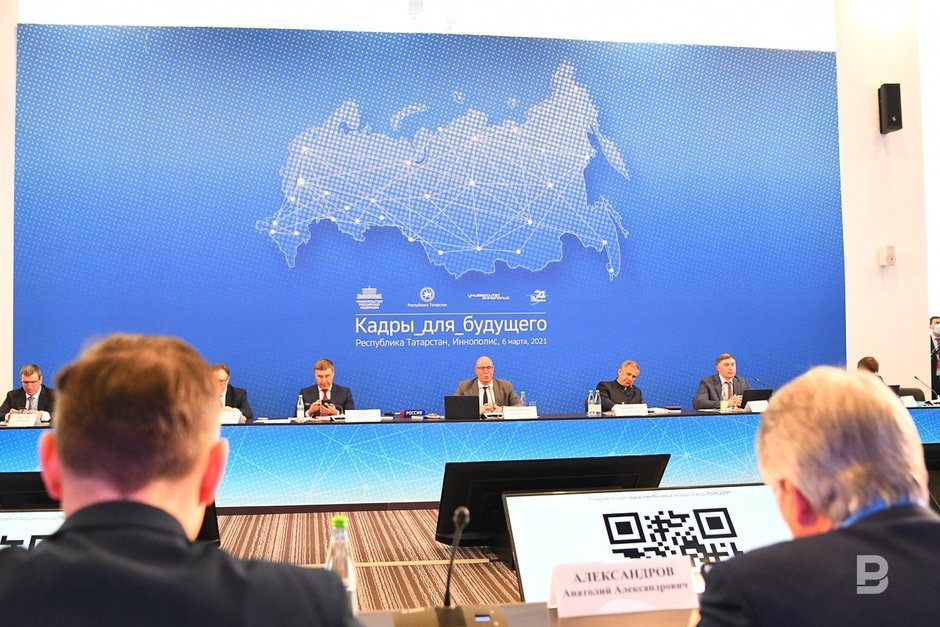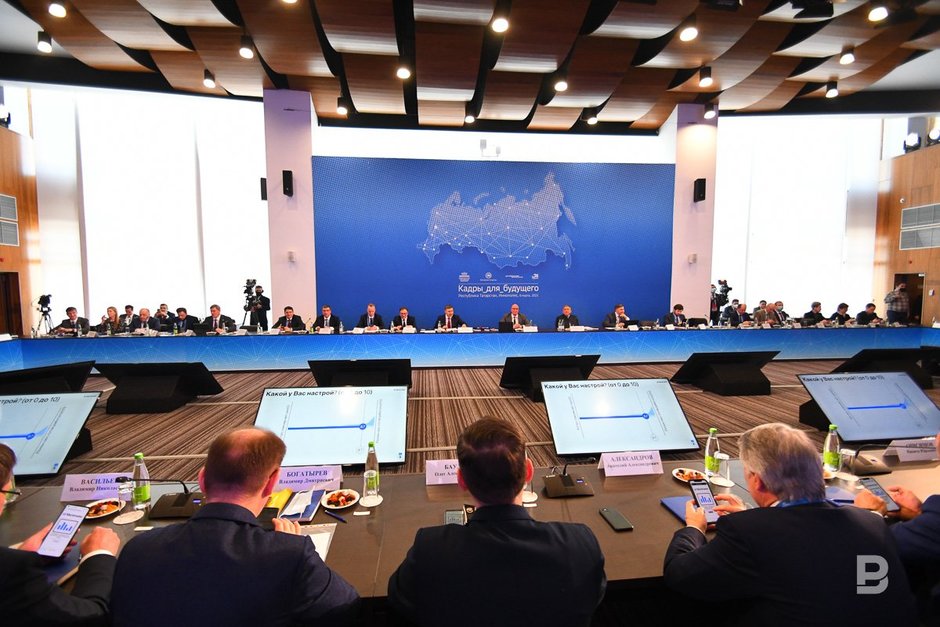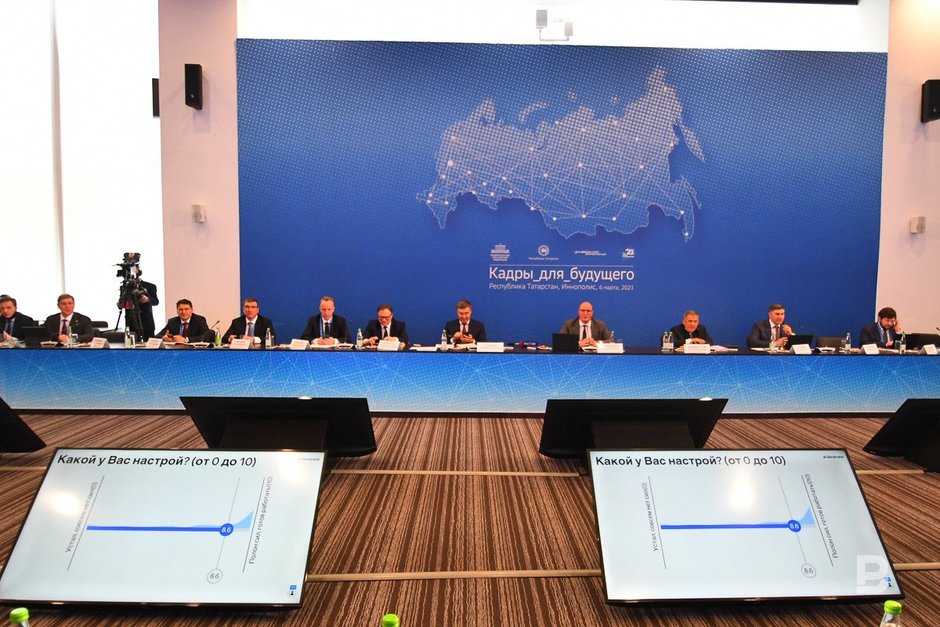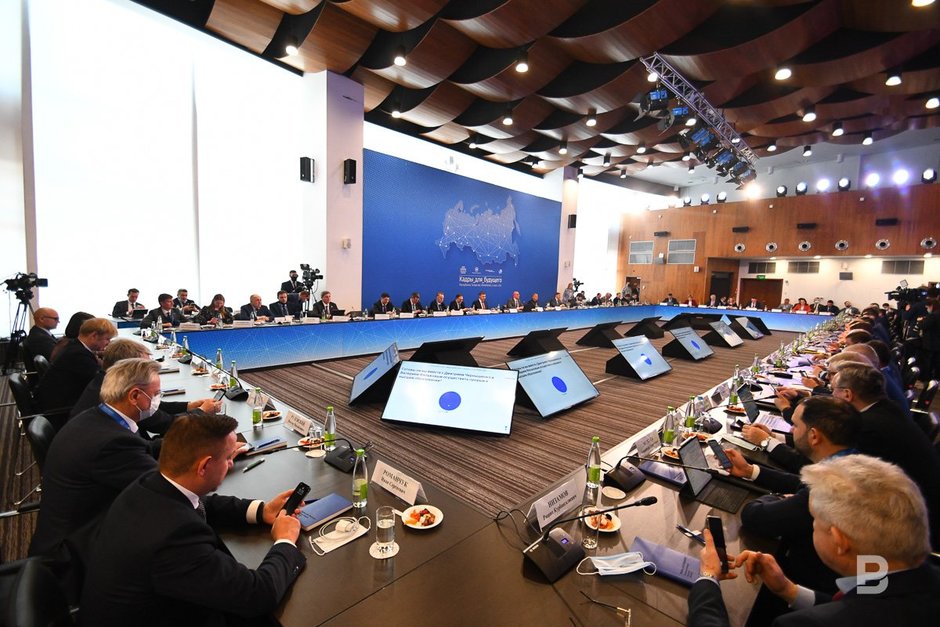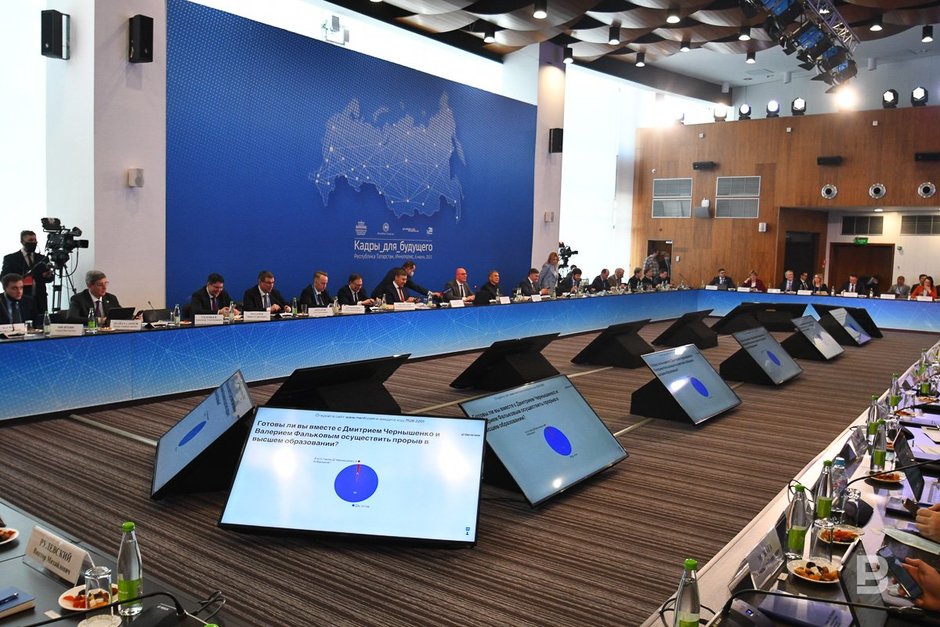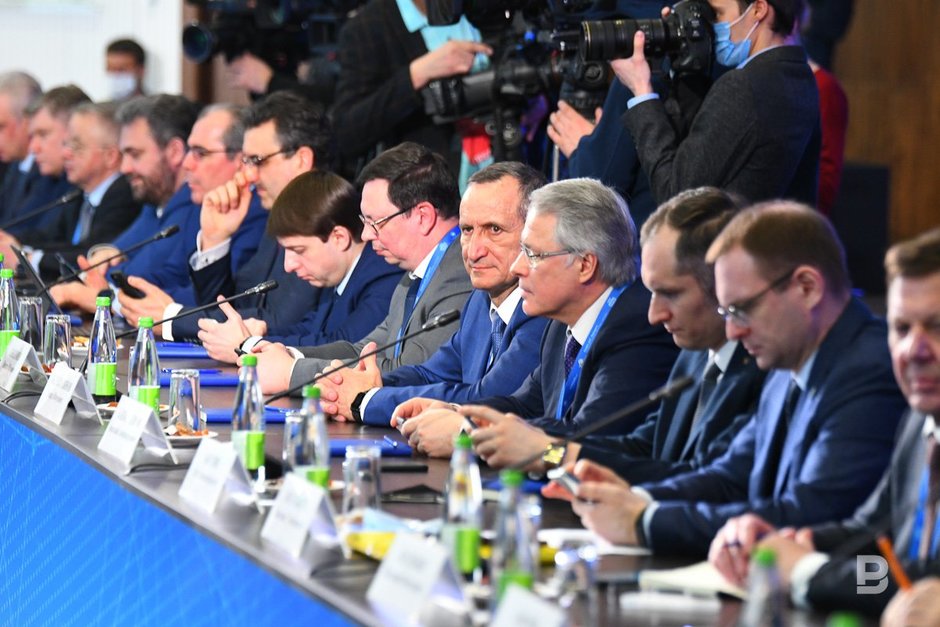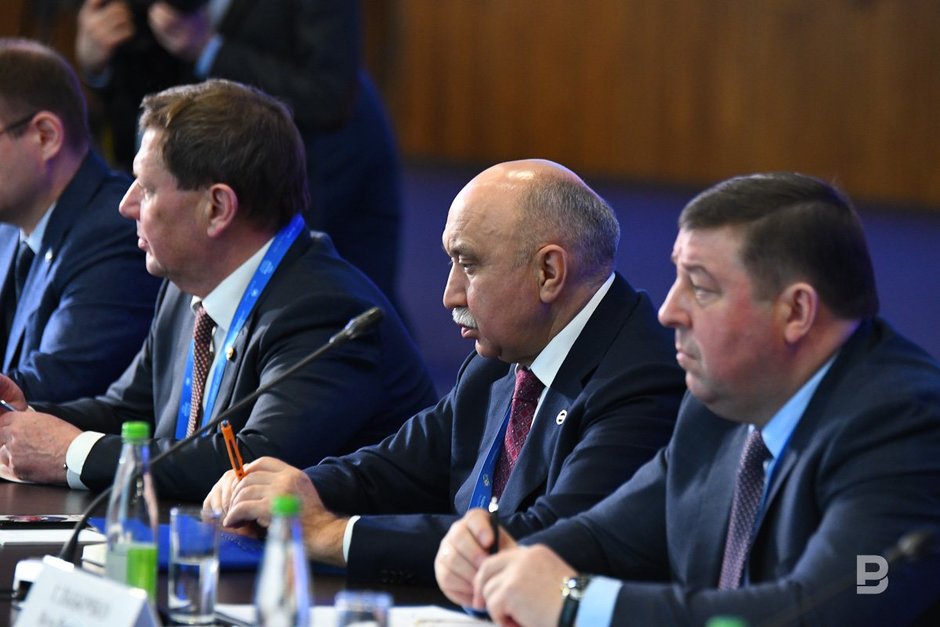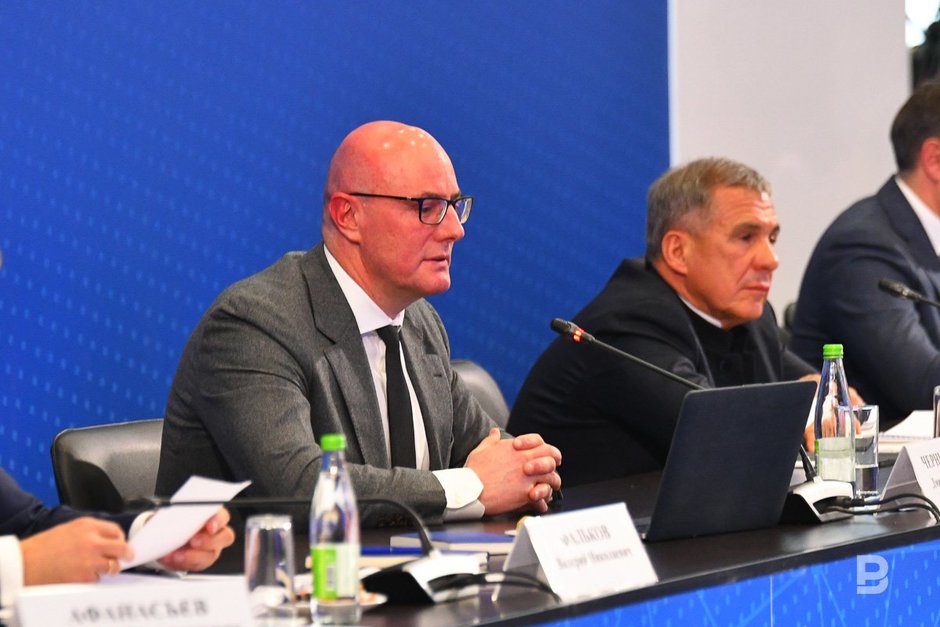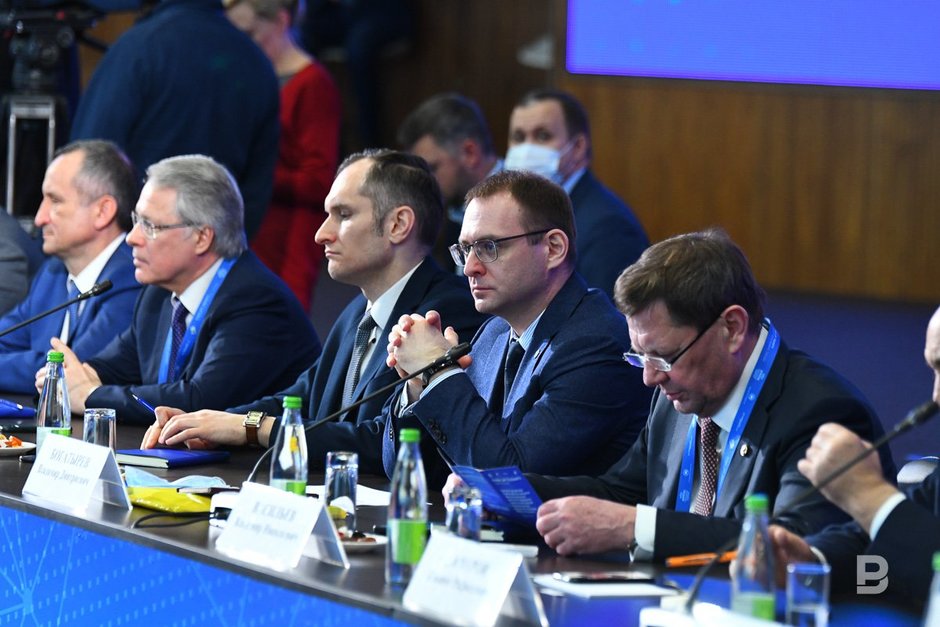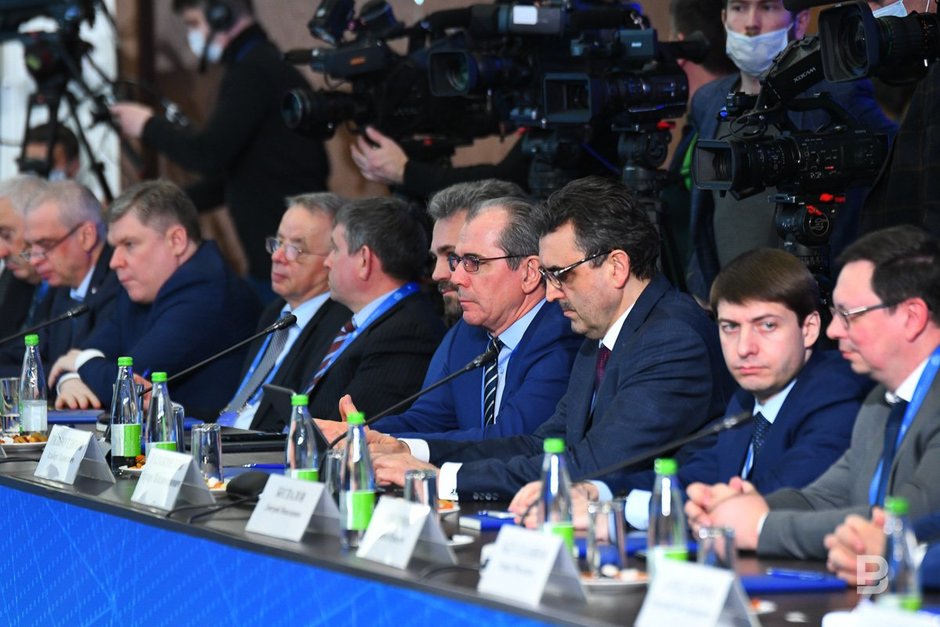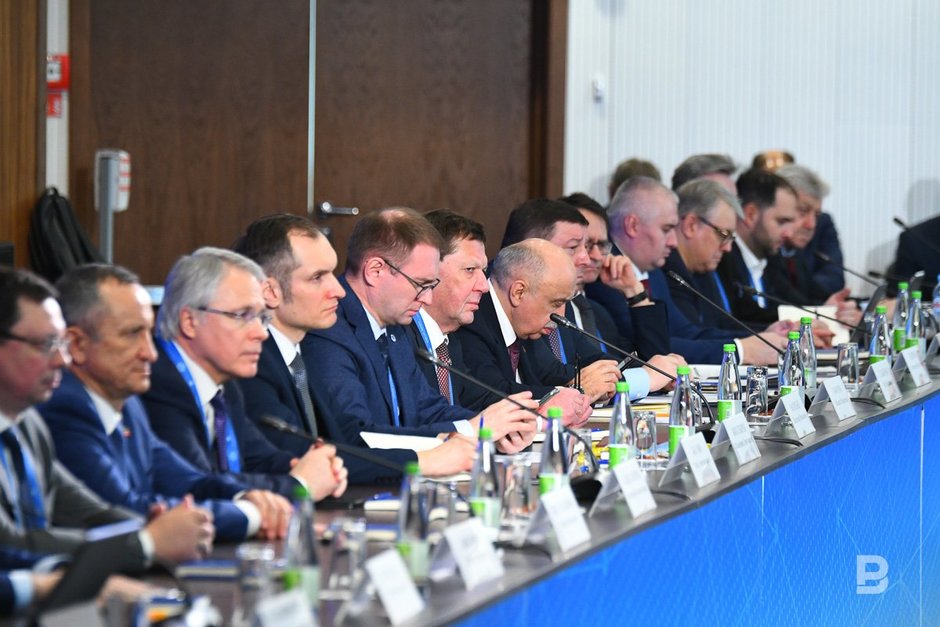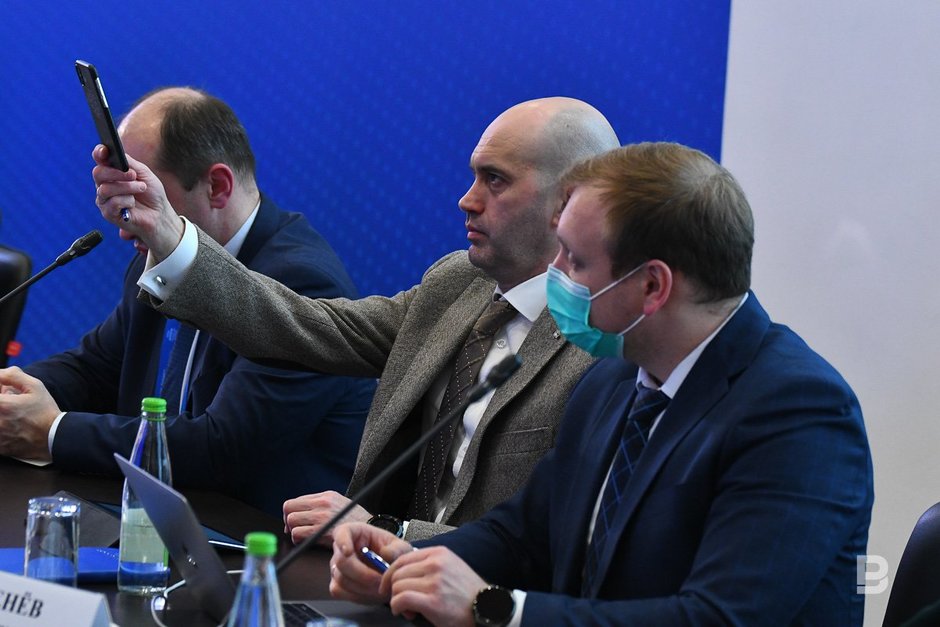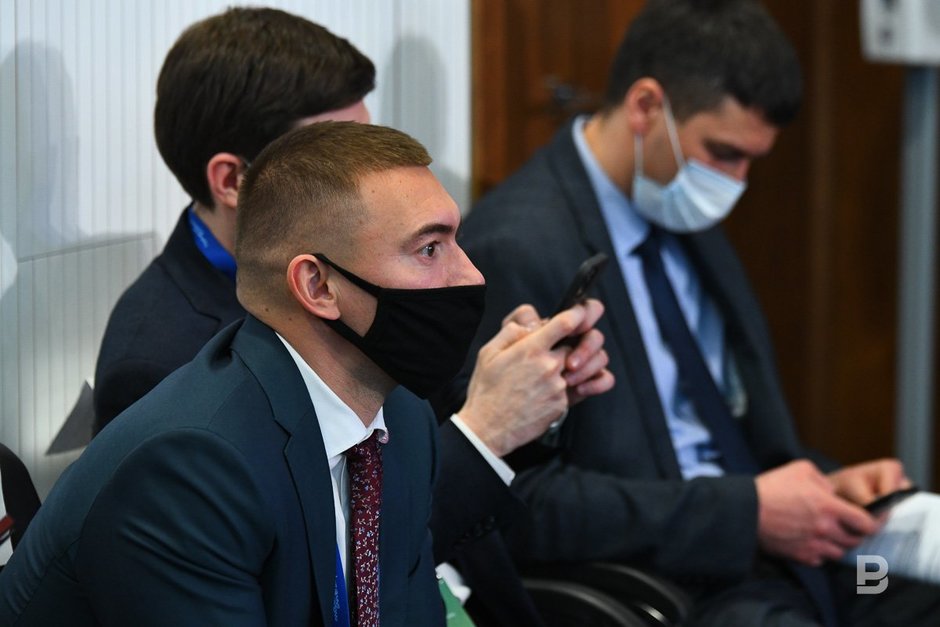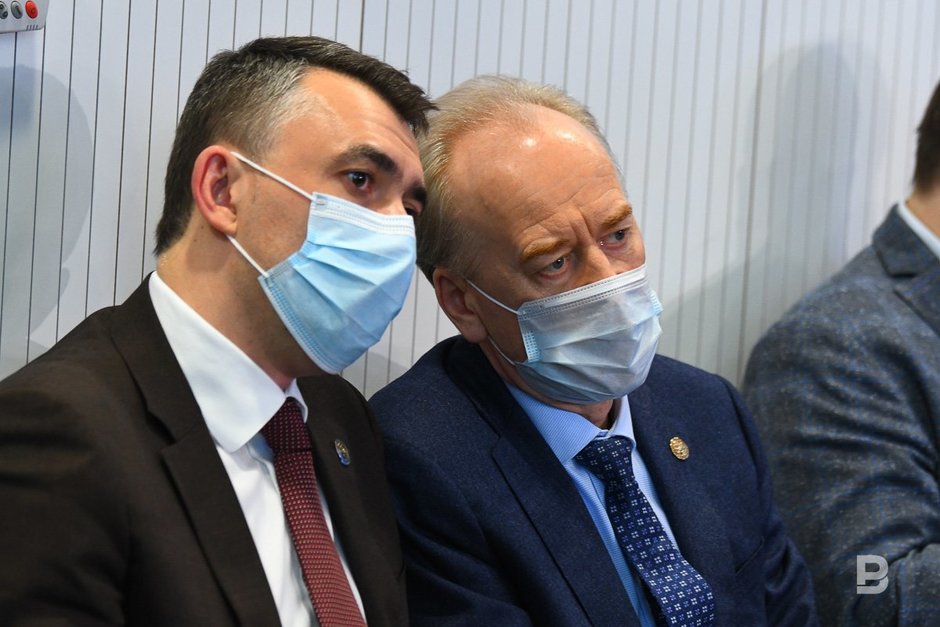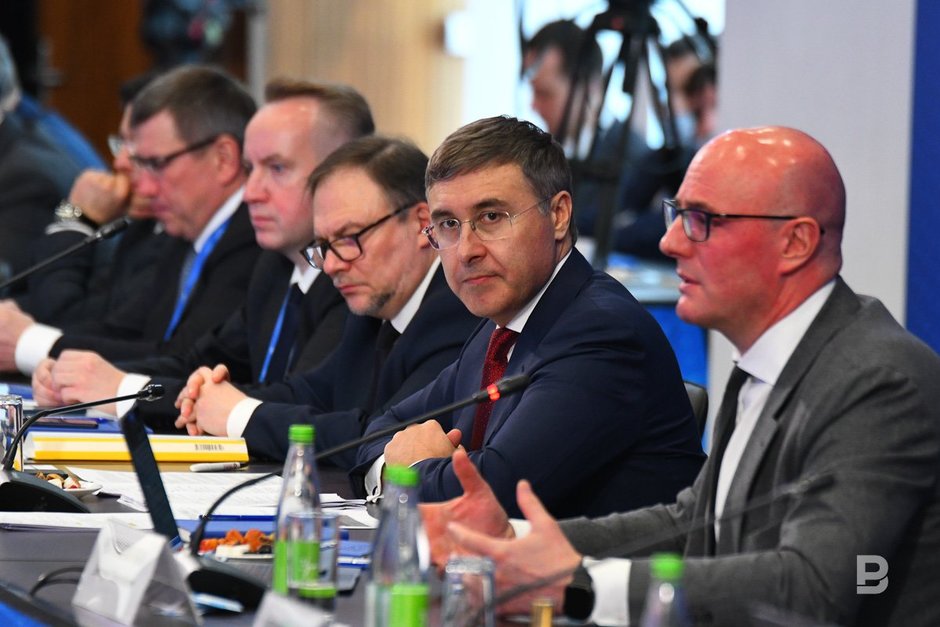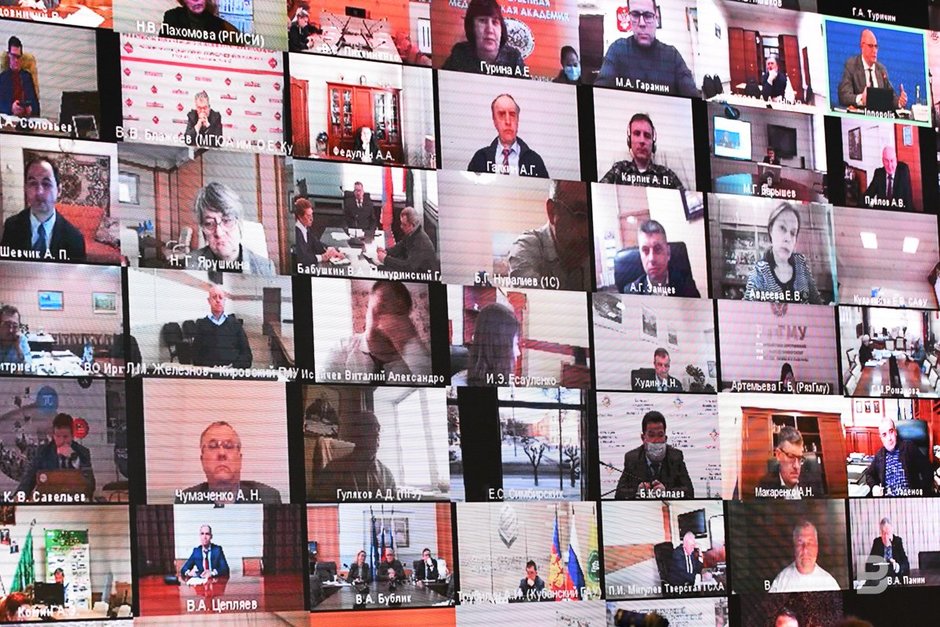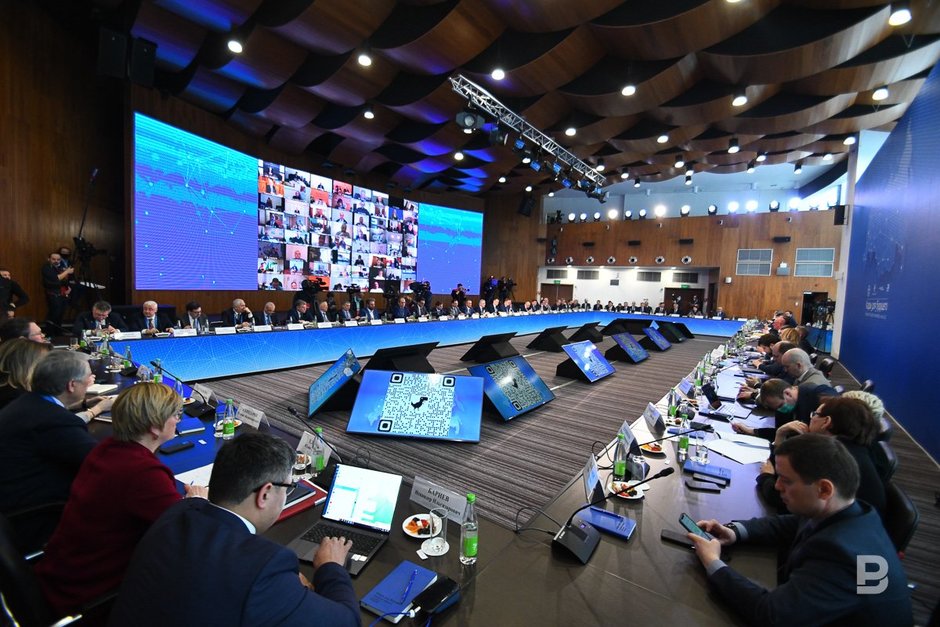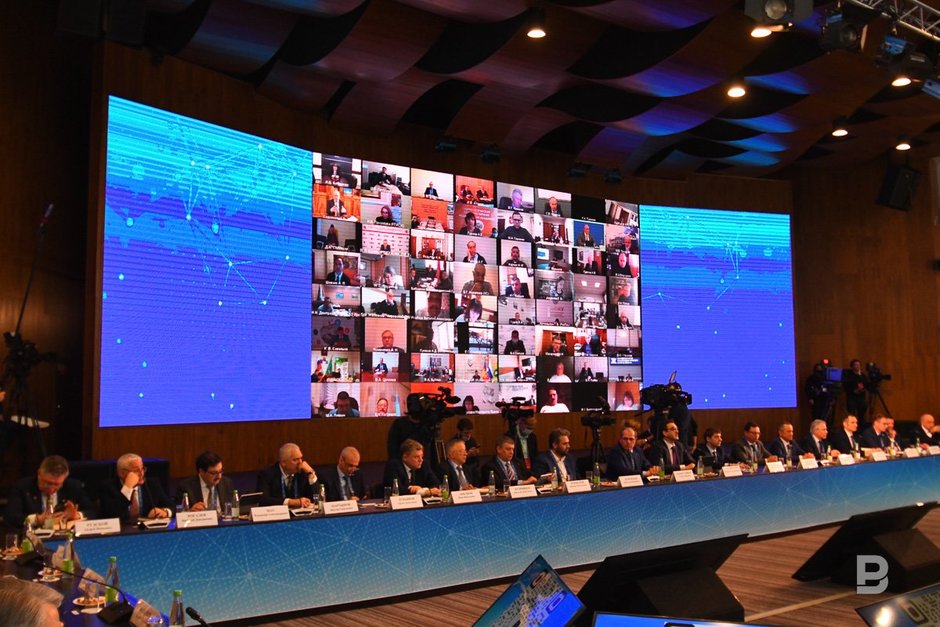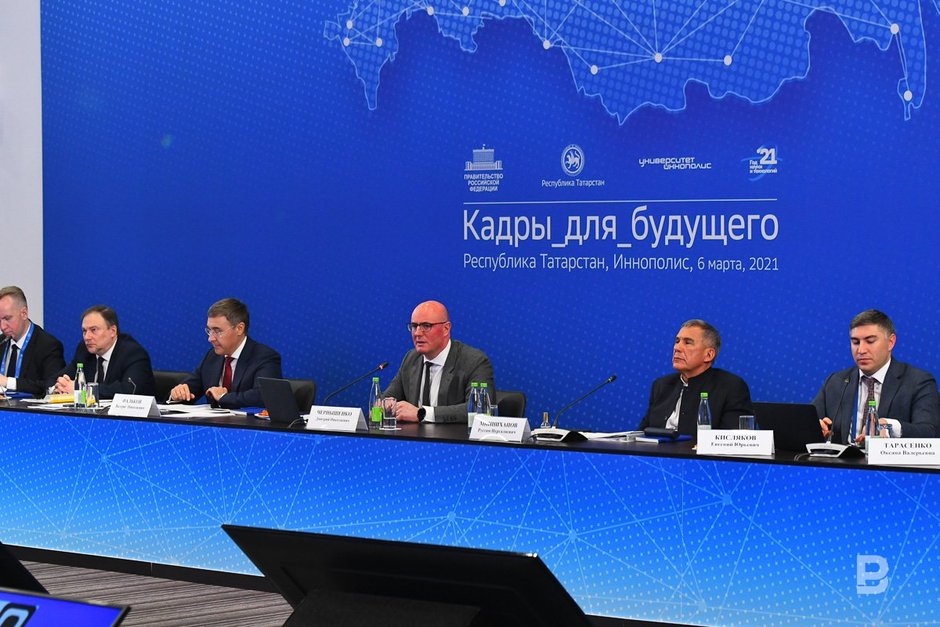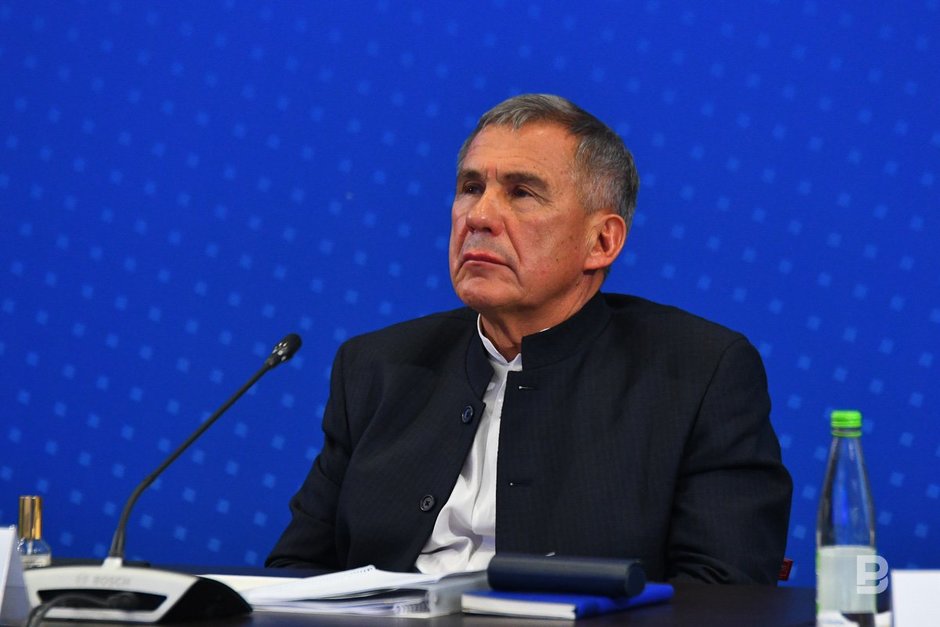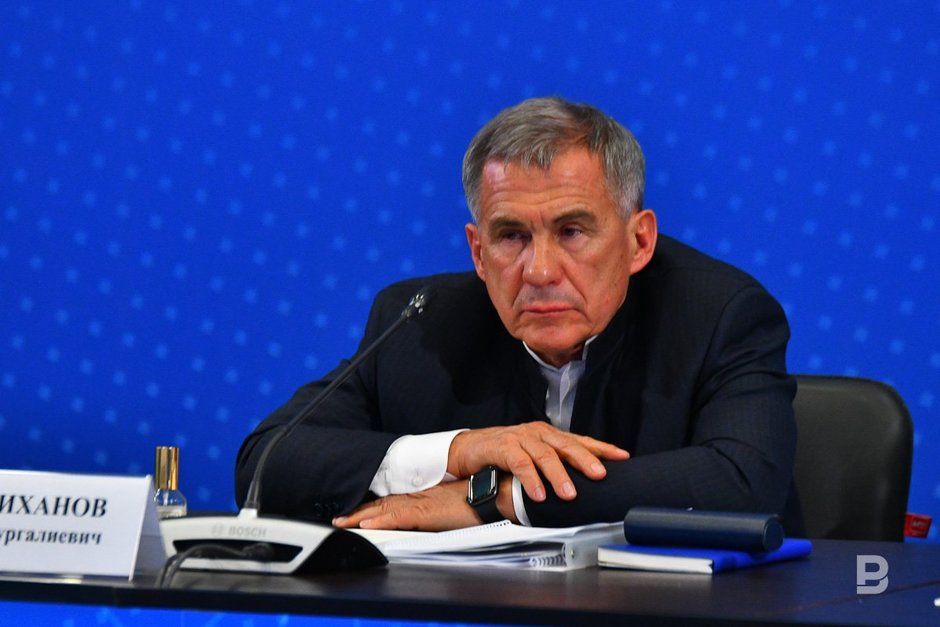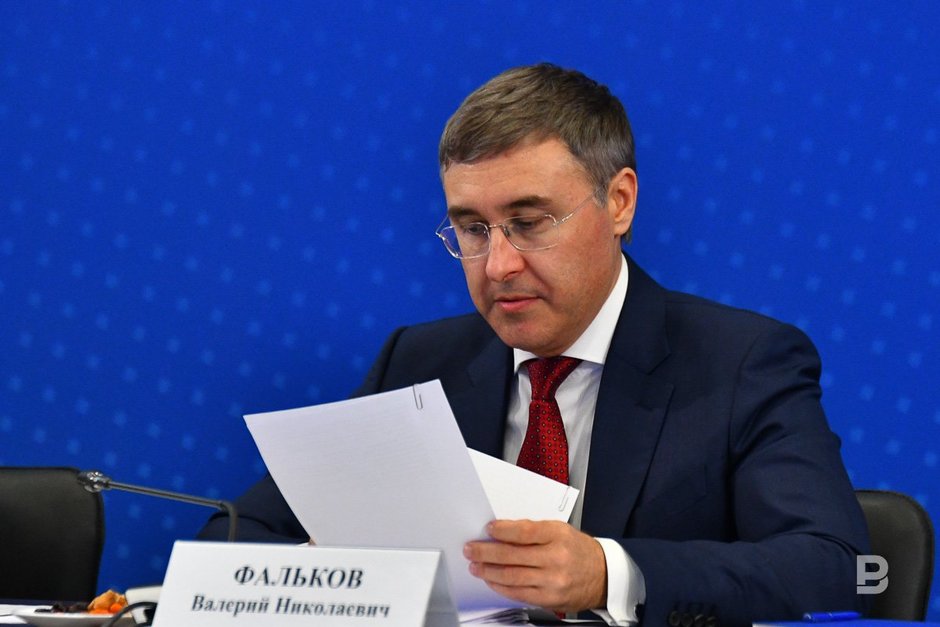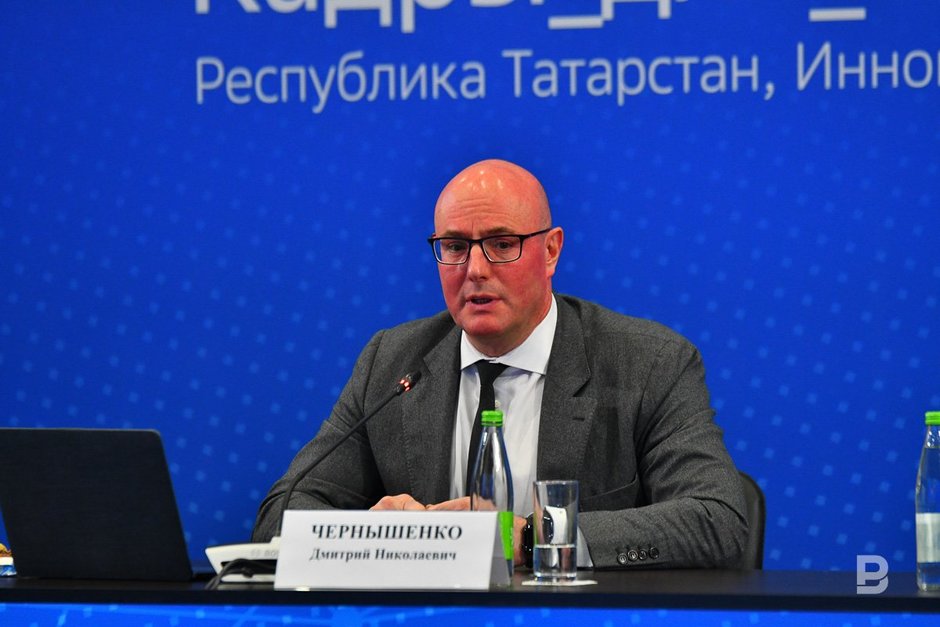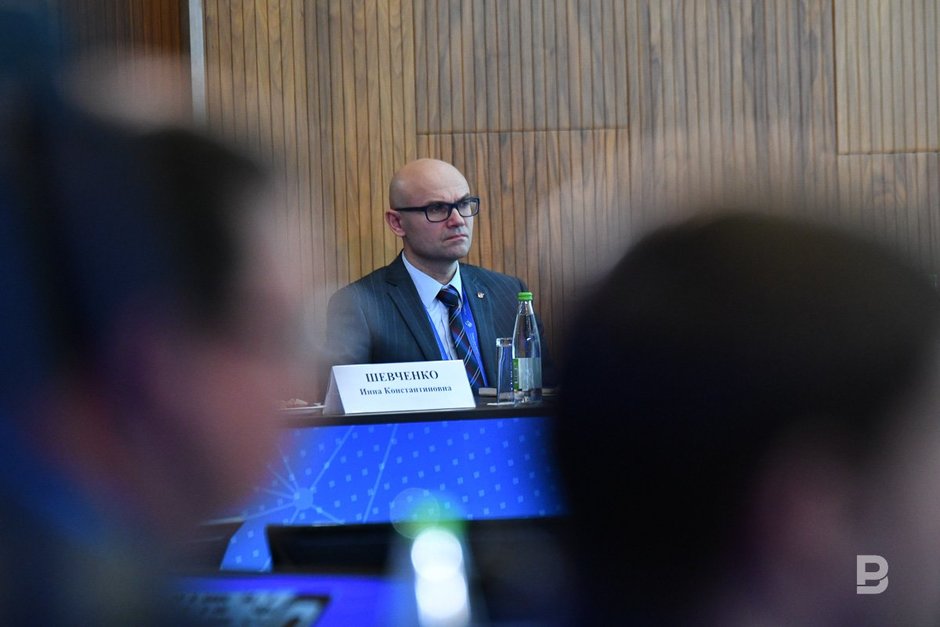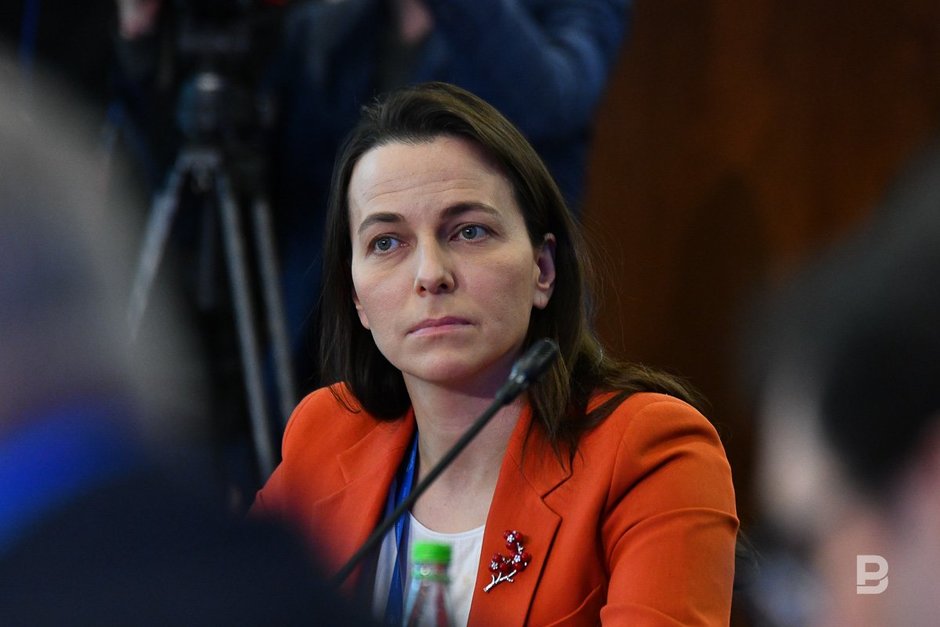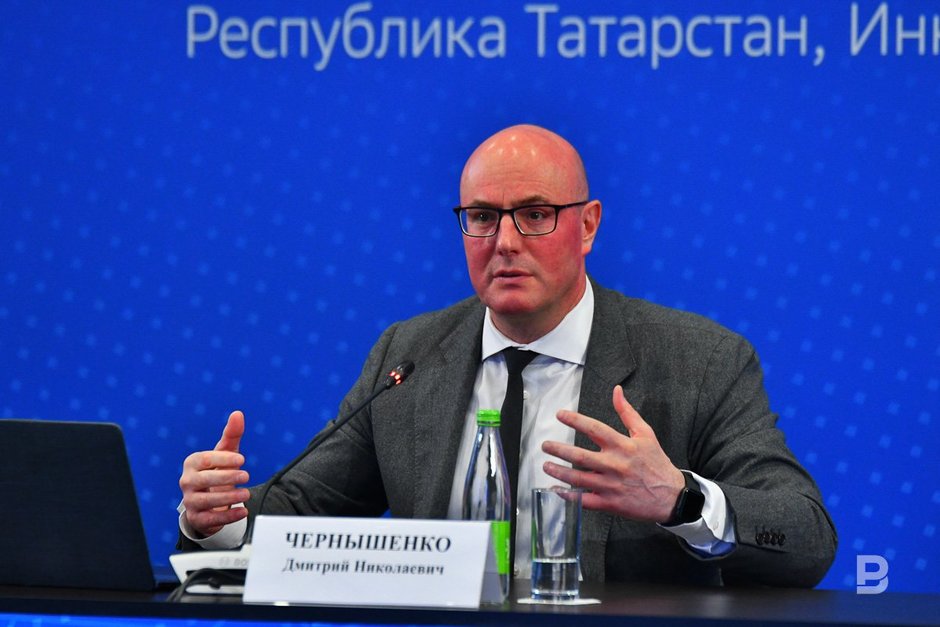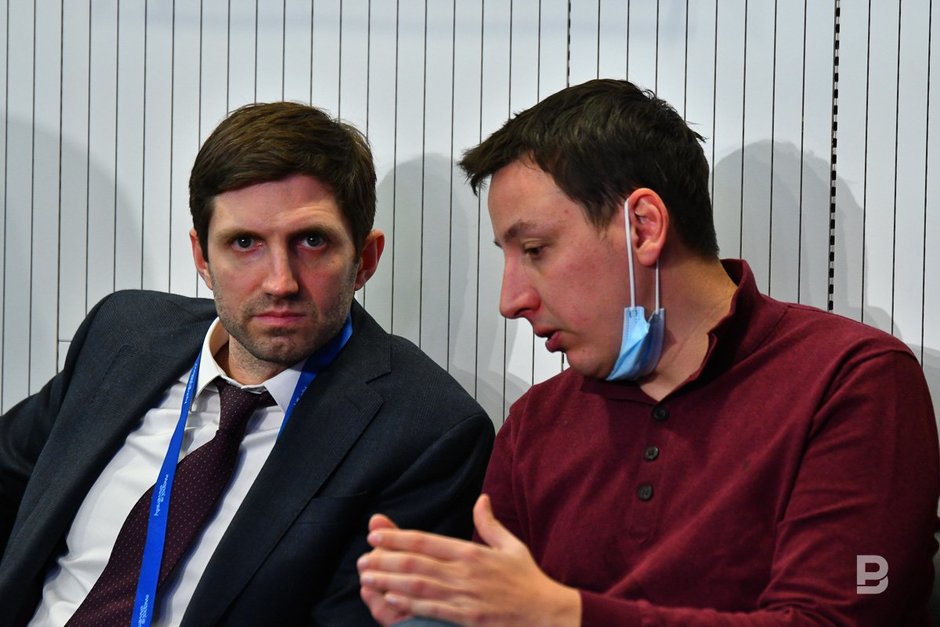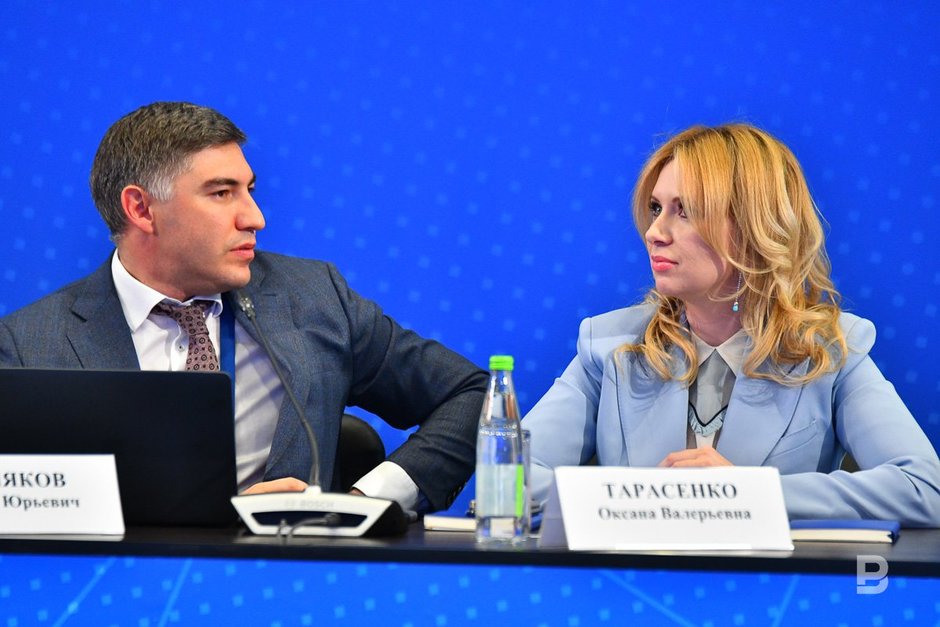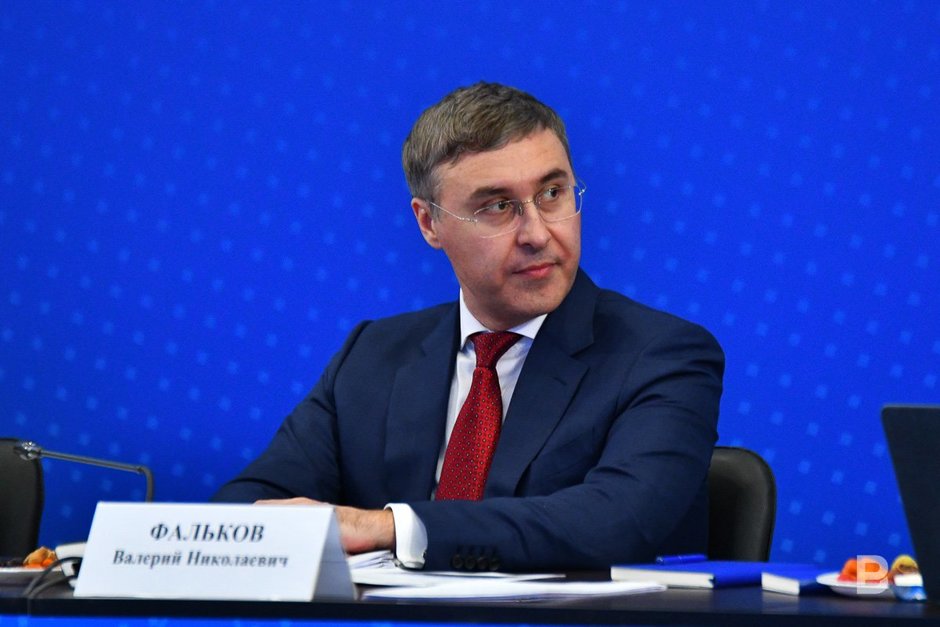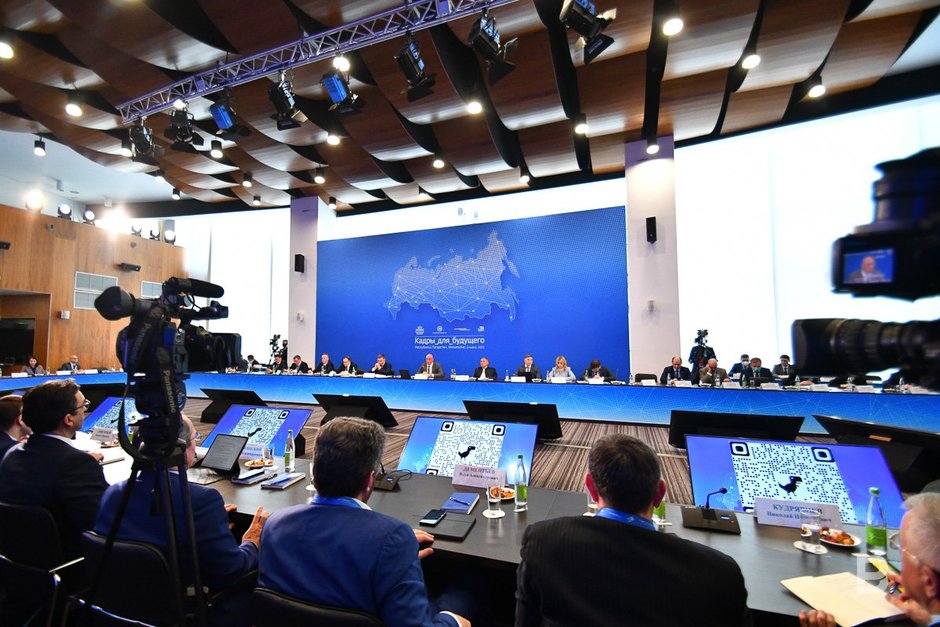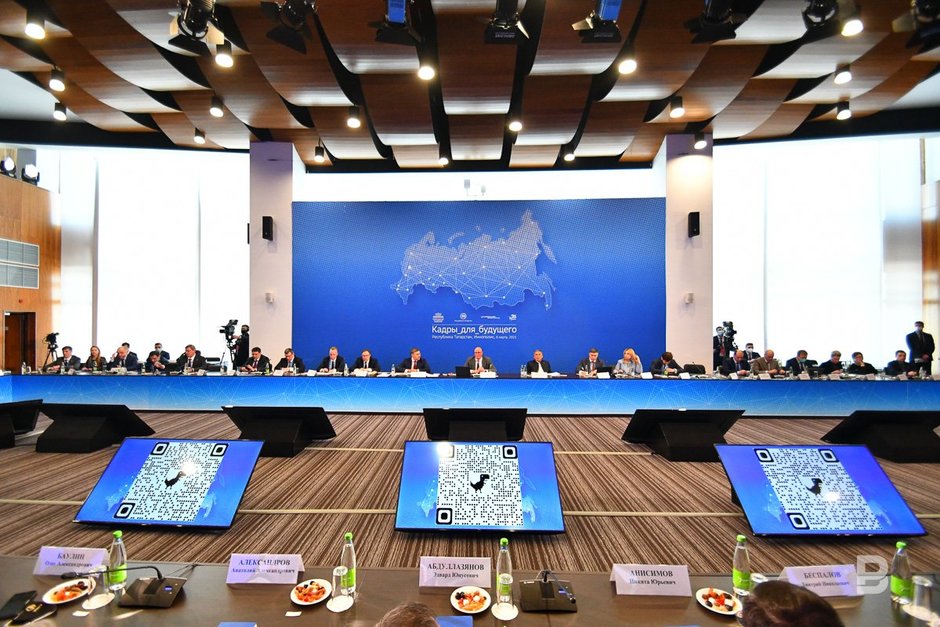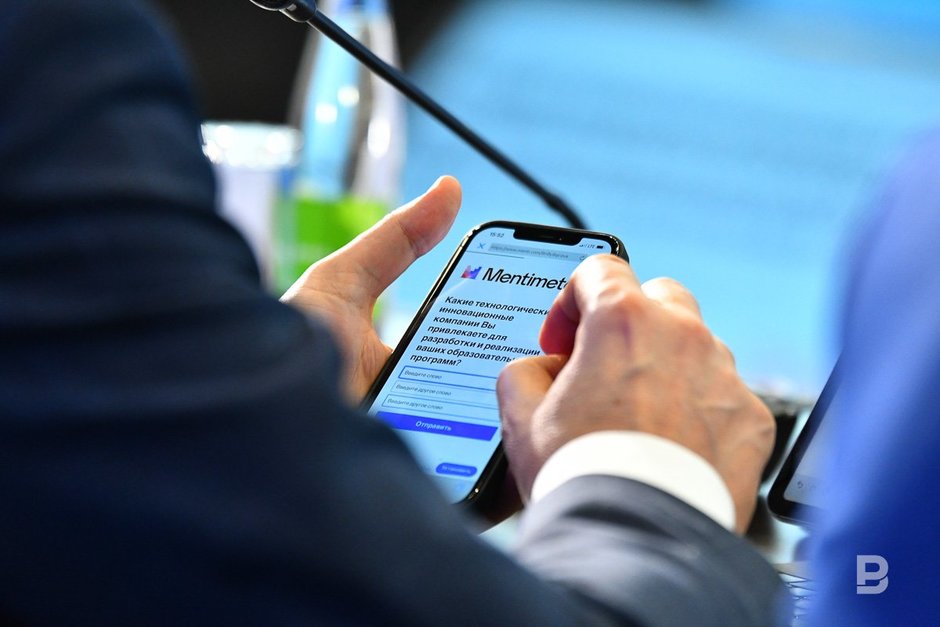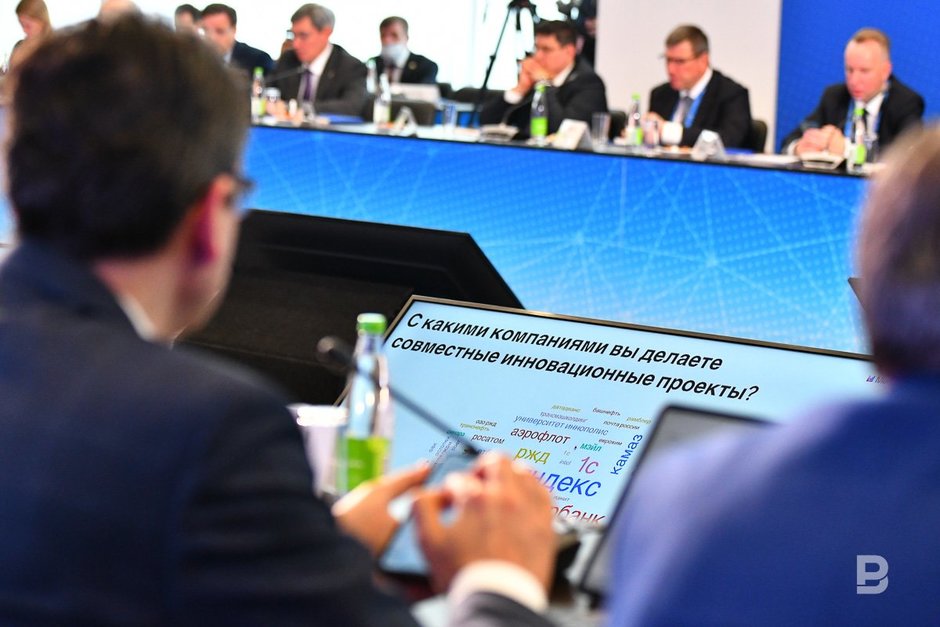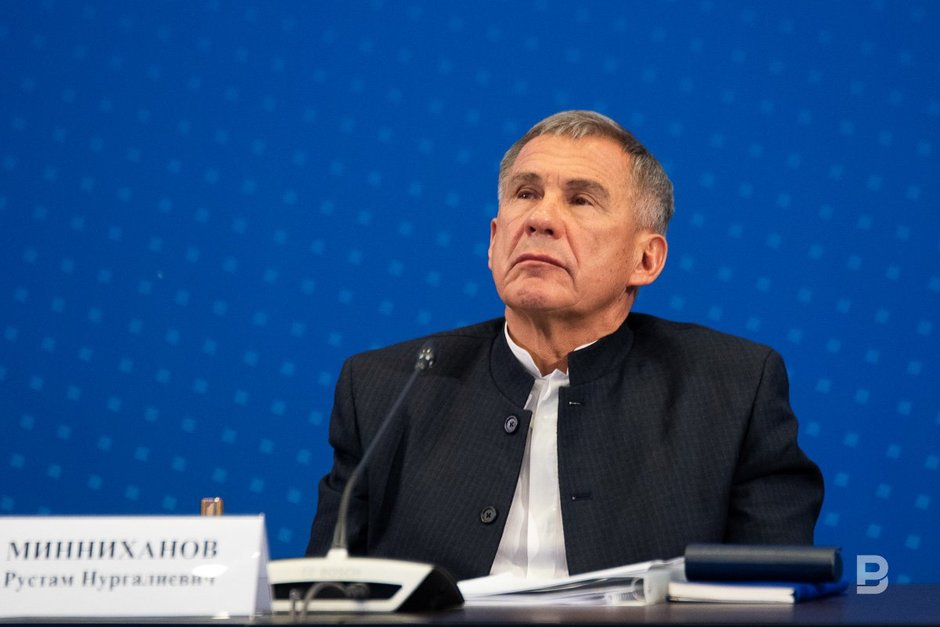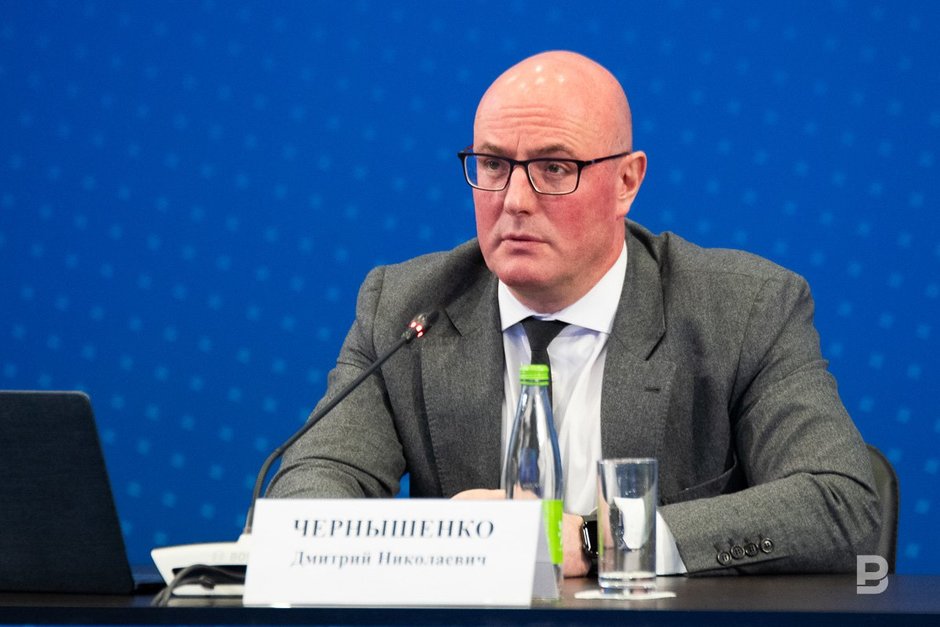Chernyshenko in Innopolis: personnel with 'digital skills' to determine everything
University rectors are told to go through the assessment screen and train a million IT specialists. And Innopolis obtains a new high status
The vaccine of mass digitalisation in the training of personnel for the Russian economy was prescribed by Deputy Prime Minister Dmitry Chernyshenko at an off-site working meeting that finished late on 6 March in Innopolis near Kazan. The meeting brought together rectors of 500 Russian universities. Chernyshenko told them to urgently train a million IT specialists. But first, the rectors will go through a mass system of competence assessment — a comprehensive assessment. According to data of Realnoe Vremya, a “blind” selection of personnel diagnostics by three IT modules is prepared for them, and testing will begin in the coming months.
Surprise for university rectors
The visiting working meeting 'Personnel For Digital Economy', which was held on 6 March in Innopolis by Deputy Chairperson of the Government of the Russian Federation Dmitry Chernyshenko (responsible for the digital transformation of personnel), finished with sensational results for the entire university community of the country.
This year, the rectors of Russian universities will have to pass an assessment — a cycle of comprehensive assessment of their qualities and competencies. In simple words, they will have to experience the sieve of personnel diagnostics of managerial, professional and personal qualities. Judging by the reaction of the audience, this was not expected by any of the participants of the fateful meeting.
It was attended by Minister of Science and Higher Education of Russia Valery Falkov, President of Tatarstan Rustam Minnikhanov. About 500 rectors of leading Russian universities, including Moscow State University, Moscow Institute of Physics and Technology, St. Petersburg State University, ITMO University, Far Eastern Federal University, as well as representatives of large companies — Yandex, Mail.ru, Sber, X5 Retail Group, Russian Railways, Aeroflot and Rosatom. In total, more than half a thousand people participated in the meeting.
After the big opening speech of the Russian deputy prime minister, the main discussion part was held behind closed doors. At the end, the key speakers went to the press with a summary of the results of the work.
Rectors will go through a sieve of assessment
“We are launching a cycle of continuous assessment of the heads of all higher education institutions," said Dmitry Chernyshenko, the deputy prime minister of the Russian government. According to him, testing is necessary “including in order to identify the most active ones who will participate in the development of a new state programme in the field of science and education”.
The need to identify the “best minds” is connected with the development of a frontal strategy for the socio-economic development of Russia in the part of the working group 'Innovations', which is supervised by the deputy prime minister. According to Dmitry Chernyshenko, the strategy in the field of personnel training is based not just on shifting existing state programmes.
“We need to find breakthrough solutions that will ensure accelerated growth on the way to achieving national goals. And here the task is to prepare personnel for the digital economy," says Chernyshenko. The key role in responding to these challenges, according to the deputyprime minister, lies with the heads of universities. They should not only train new personnel, but also provide them with digital skills. To do this, the rectors' competencies themselves must meet the changed requirements of the time.
As one of the participants of the meeting explained to Realnoe Vremya, they were asked to pass “blind” testing by three IT modules according to the original Russian methodology of personnel diagnostics.
“The heads of higher education institutions should have a mandatory set of certain characteristics and have managerial skills," he explained. “Testing to identify them is practiced in large Russian companies when choosing a candidate for a senior position. The higher the position, the more difficult it is to do this. The candidate is evaluated as follows: what is his level of system thinking, whether there is the ability to take responsibility, whether there is the ability to form a team. Stable psychological qualities (the ability to speak and reason calmly) are important. Such diagnostics make it possible to quickly obtain objective information about the key management characteristics and personal qualities of the manager.”
As part of the testing, rectors will be asked to pass several blocks: psychodiagnostics, a business game to identify managerial skills, and an assessment of soft skills (not related to professional qualities). It is expected that the testing of rectors may begin in the coming months.
Chernyshenko asks to train up to 1 million IT specialists
Today, the main problem of personnel training is seen in the “qualification pit”: the discrepancy between supply and demand in the labour market in IT.
“We are talking about an imbalance and a gap between the requirements of the market and what we are currently preparing," said Dmitry Chernyshenko in his opening speech.
In his opinion, there is an acute shortage of IT specialists in the country. At the same time, the number of state-funded places in universities in technical specialties has been doubled. But in some universities, these places still remain unfilled.
“What a paradox!” Chernyshenko exclaimed. “Today, the top 10 specialties are specialists in the field of working with big data: machine learning engineer or application architect. These are the professions that offer the highest salaries on recruitment aggregators. It would seem that there is a demand! But why is there a shortage of IT specialties?" the deputy chairman of the government of Russia was indignant. According to him, today the deficit is estimated from 700,000 people to 1 million.”
“This training should be provided. This is what we will ask of you," he said to the rectors of the universities.
The most frequently asked question is — who will teach!?
“This question is always asked after viewing the stands. Who will teach?" Dmitry Chernyshenko put the question point-blank. “Even I, having a basic education as a system engineer, do not dare to call myself an expert in this area.
He suggested that university rectors attracting the best personnel.
“So that the lecturers at your university are not only competitive with their colleagues from business and technology companies, but also superior to them. This means that you should have such a science, such research, that they will attract such a level of specialists from business," he advised.
According to him, about 80,000 teachers for training in digital specialties need to be trained in Russia by 2024. However, Chernyshenko immediately honestly doubted who would train them:
“I don't really understand who will train these teachers.
He also added that this year 16,000 teachers of universities and institutions of secondary vocational education should be retrained. According to him, some specialties do not need to be taught for 5 years, you can train specialists in working with data, programming industrial languages or working with artificial intelligence much faster. According to him, these specialists are extremely necessary for the economy.
For what the university can be deprived of state-funded places
The quality of training of specialists will now be evaluated by the level of employment of graduates in the specialty. This indicator will be the determining factor in the formation of the budget task for the training of specialists.
“If graduates do not go to work in their specialty after graduation, then budget places will be redistributed to other universities," he warned.
After that, an online vote was held among the rectors of universities on what to do for a university whose graduates do not work in their specialty. The majority of rectors answered that it is necessary to increase interaction with employers (150 votes out of 300). In favour of improving the quality of education, 125 participants voted, and only 25 participants tore the metaphorical vests on their chests and agreed with the proposal to take away state-funded places.
The rector of the Russian Academy of Sciences, Vladimir Mau, in a conversation with Realnoe Vremya, explained that this problem is more typical for regional universities than for Moscow universities. But he noticed that the monitoring of the employment of graduates is still not conducted and what it means to “work in the specialty” is not yet regulated.
Innopolis is becoming the Russian IT training centre
Innopolis University has been selected as the reference educational centre that will train personnel for digital economy. Dmitry Chernyshenko personally became the chairperson of its supervisory board. On the basis of the university, on behalf of the government of Russia, a consortium of institutions of higher and secondary vocational education is being created. Universities are recommended to join it.
Let us remind that Vladimir Putin defined digital transformation as a national development goal until 2030. To do this, it is necessary to reach four indicators:
- to achieve “digital maturity” in key sectors of the economy and social sphere (including healthcare and education, public administration);
- to increase the share of mass socially significant services available in electronic form to 95% ;
- to increase the share of households with broadband Internet access to 97% ;
- to increase investments in domestic IT solutions four times. To perform these tasks, highly qualified IT personnel are needed.
Innopolis University trains personnel for the digital economy. Specialists of leading Russian companies who know the specifics of the industry and the needs of the market participate in the development of its educational programmes. That is why the All-Russian meeting 'Personnel for The Future' was held here, in Innopolis.
Valery Falkov, the minister of science and higher education of Russia, made a report on the topic 'Personnel For Digital Economy'. The representatives of Innopolis University, RANEPA, and Stankin Moscow State Technological University spoke about digitalisation in the field of education and in the industrial industry. The representatives of the ministry of economic development of Russia and the Ufa State Petroleum Technological University reported on the use of artificial intelligence technologies in education and science. The participants of the meeting also listened to the report 'On the experience of Innopolis in attracting and training personnel in the field of information technology'.
In the course of the meeting, a ready-made programme of additional professional education was also presented. By 2024, at least 30% of the teaching staff of universities that prepare students for priority sectors of the economy, and at least 70% of teachers of IT-related areas of training will receive advanced training.
